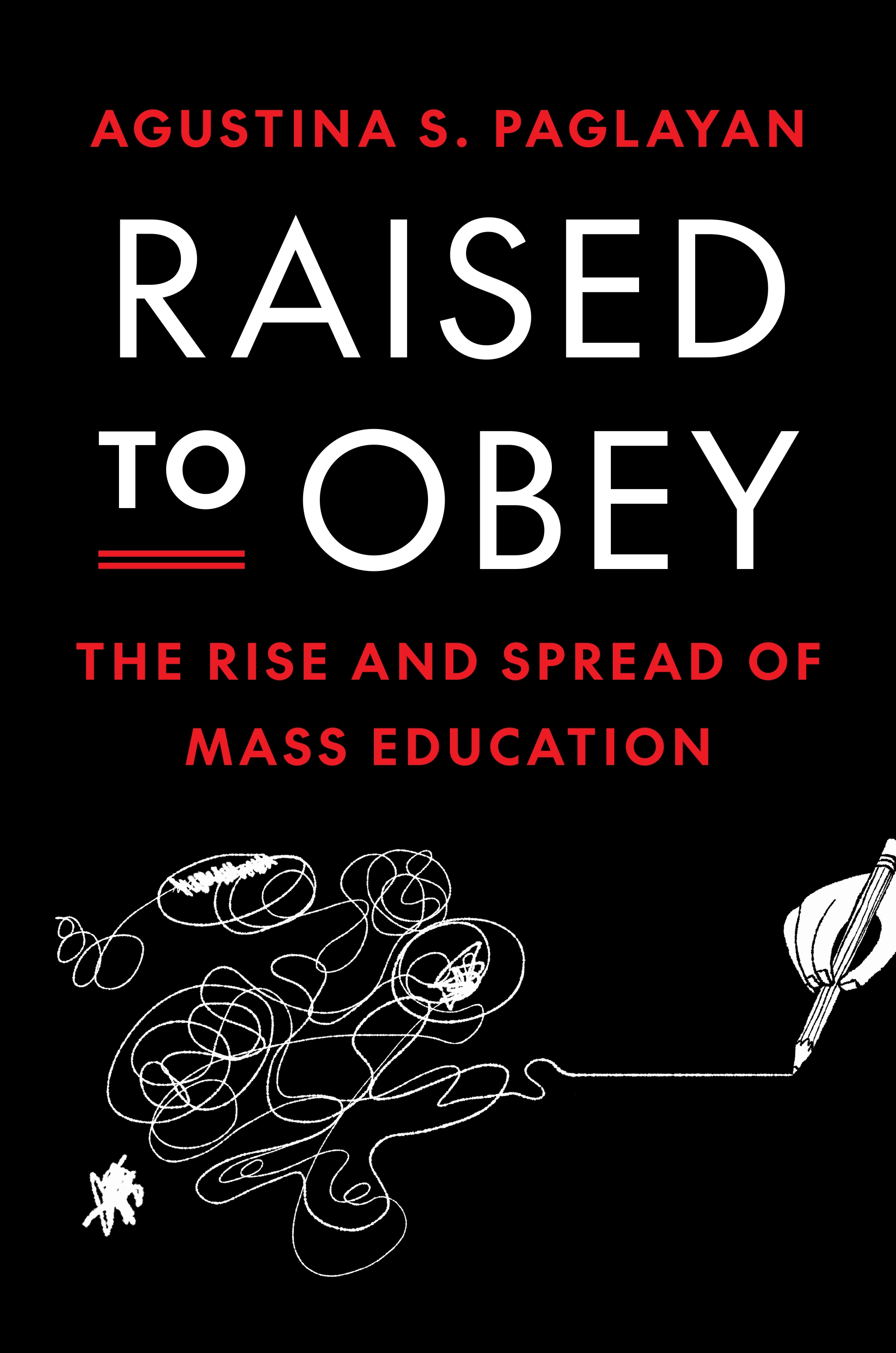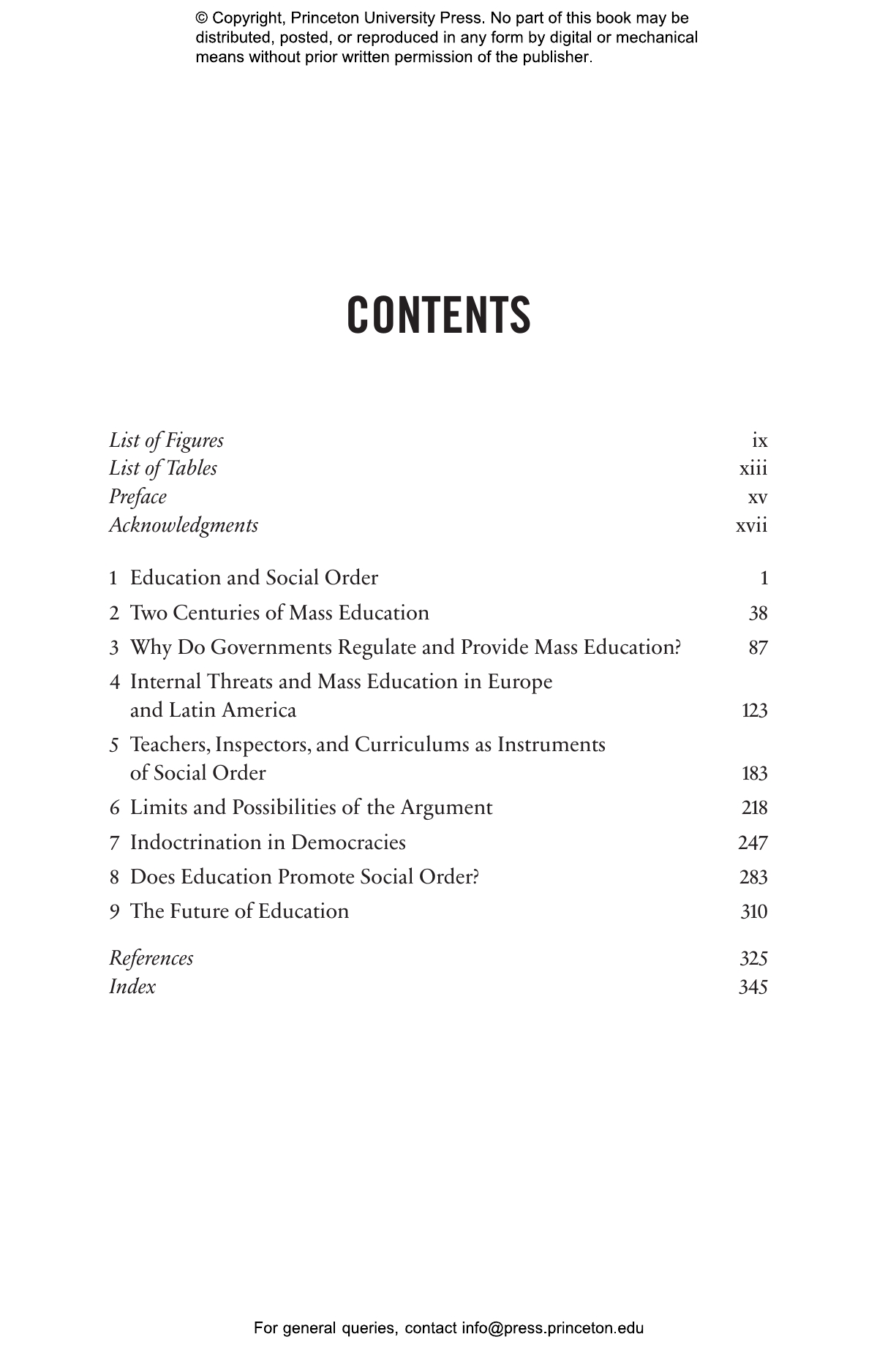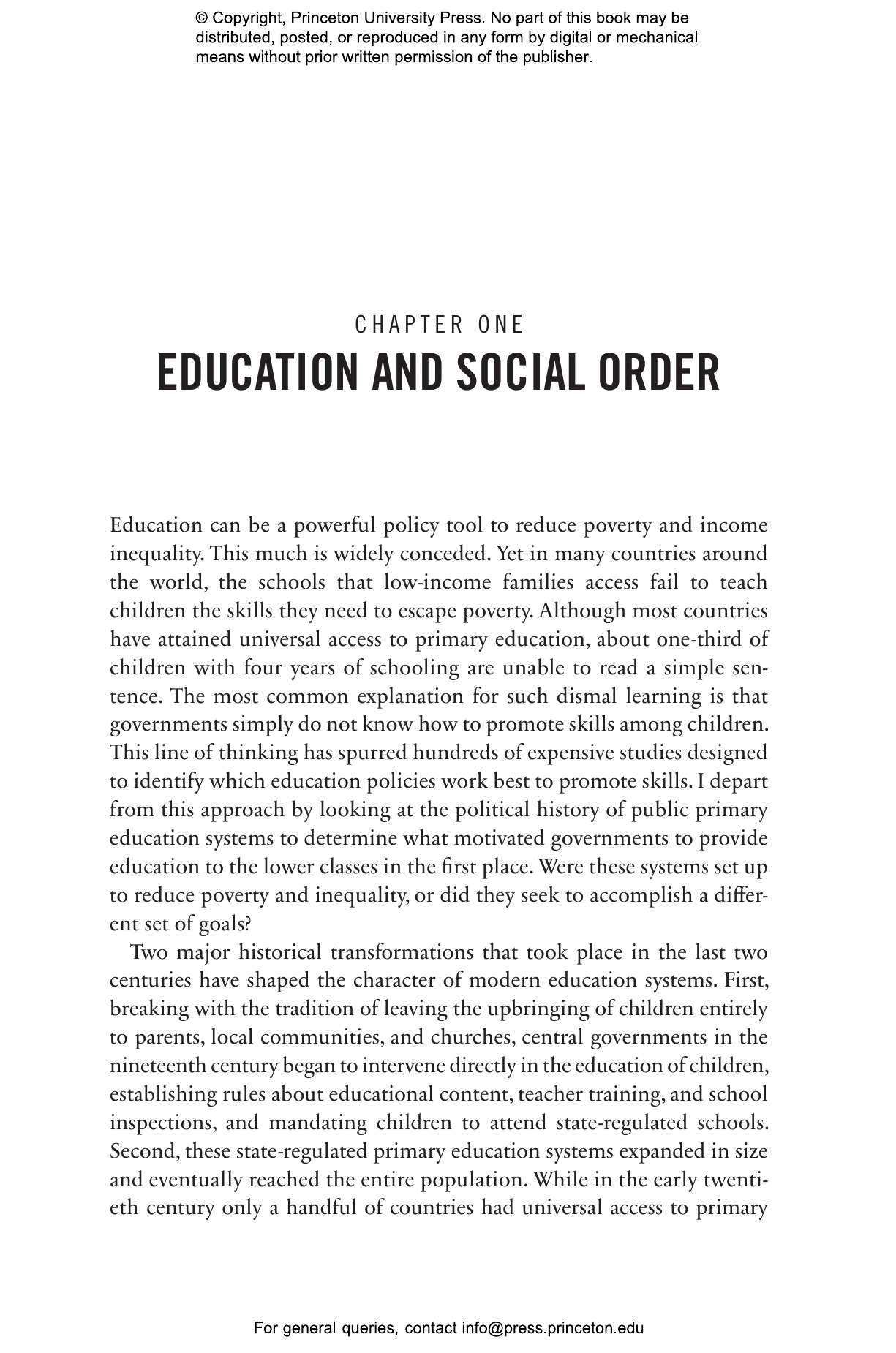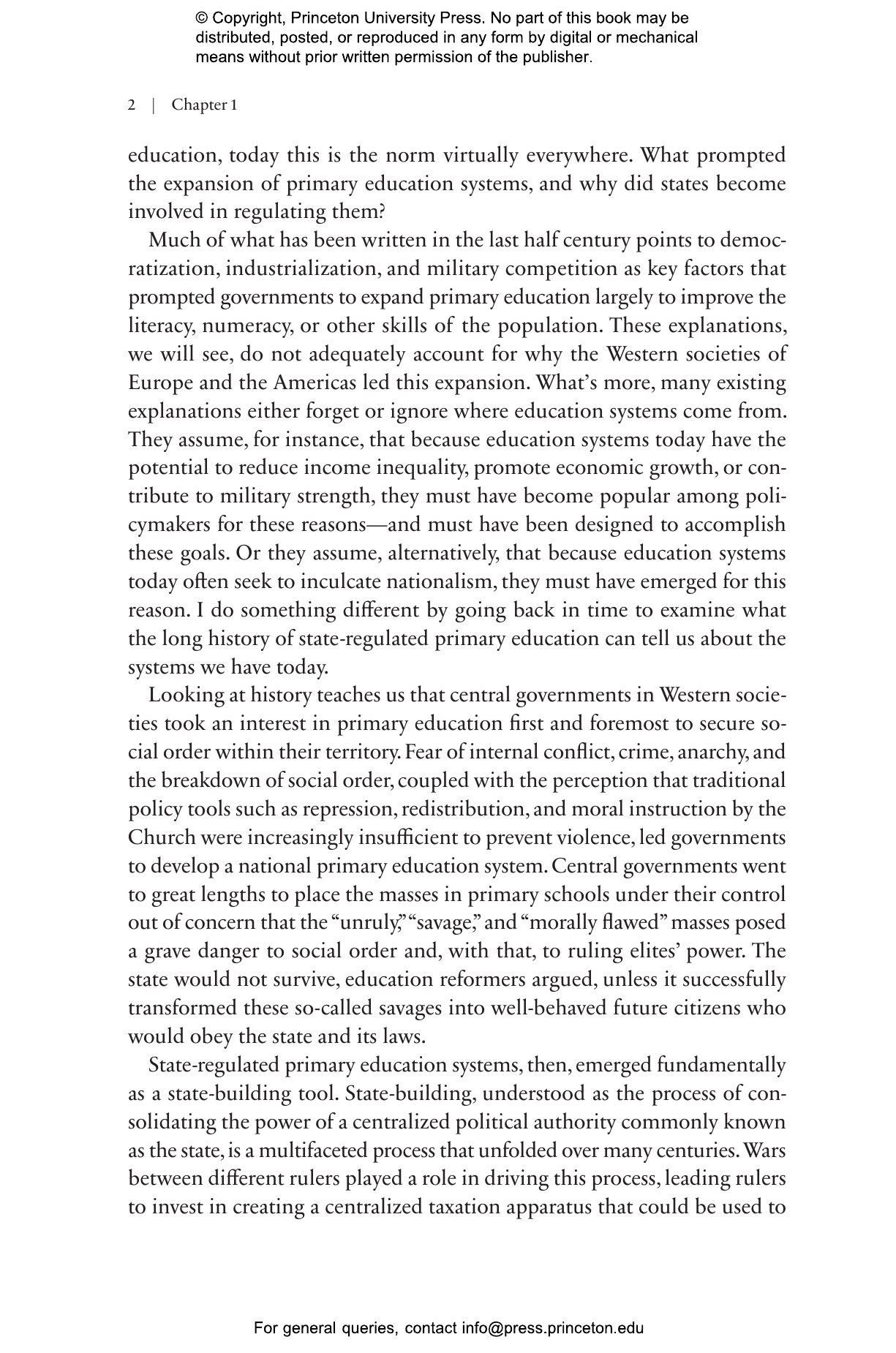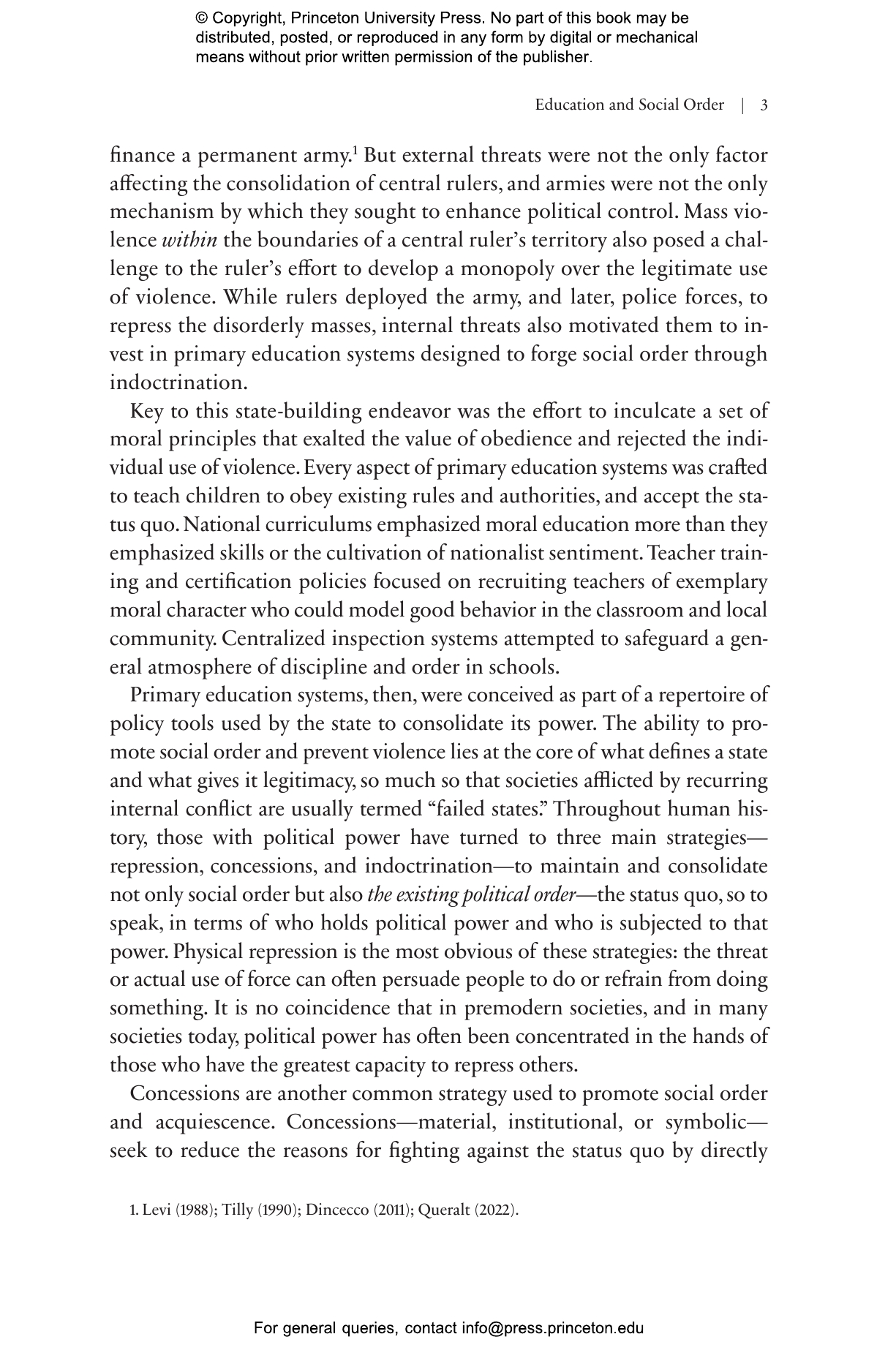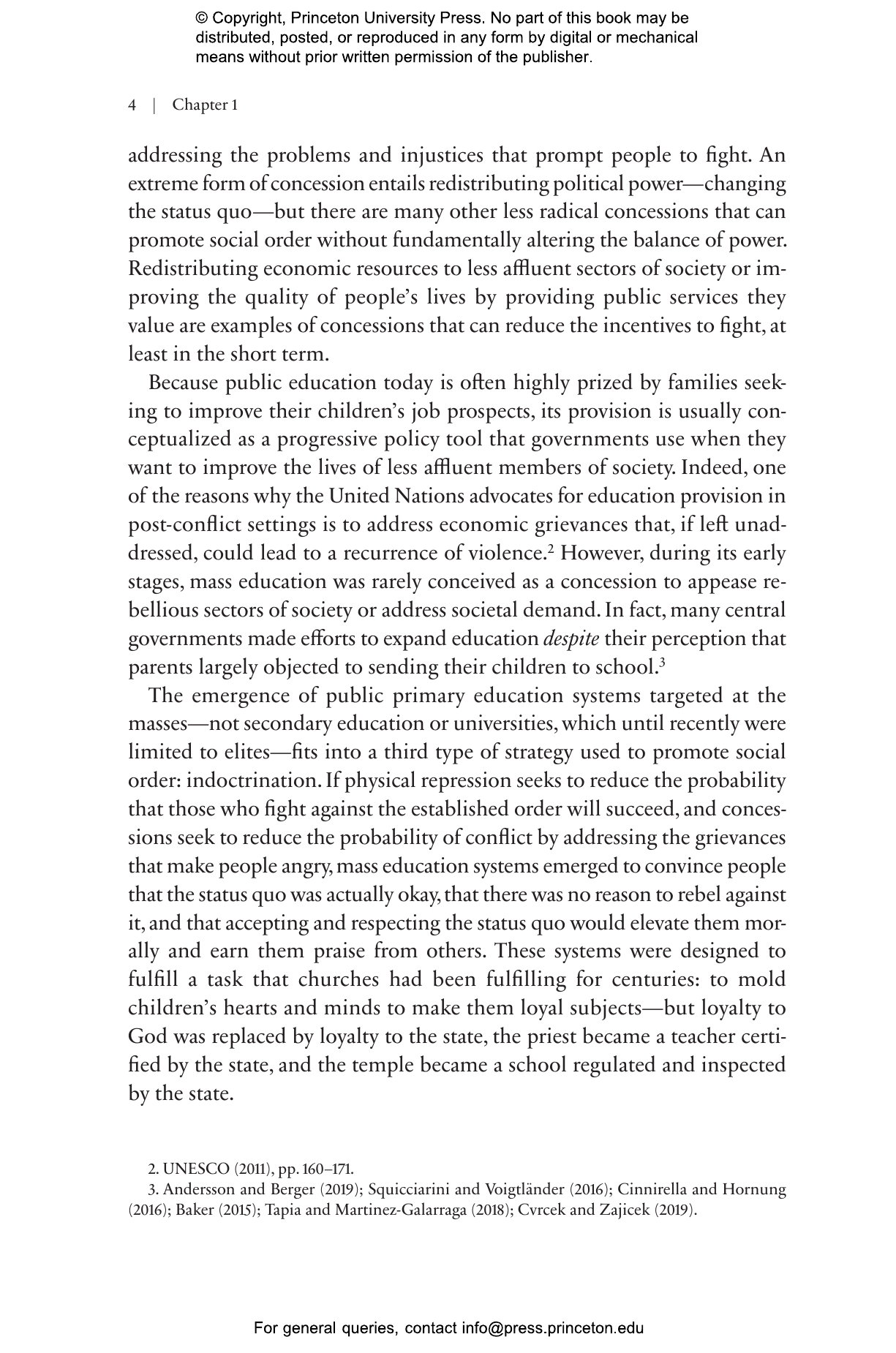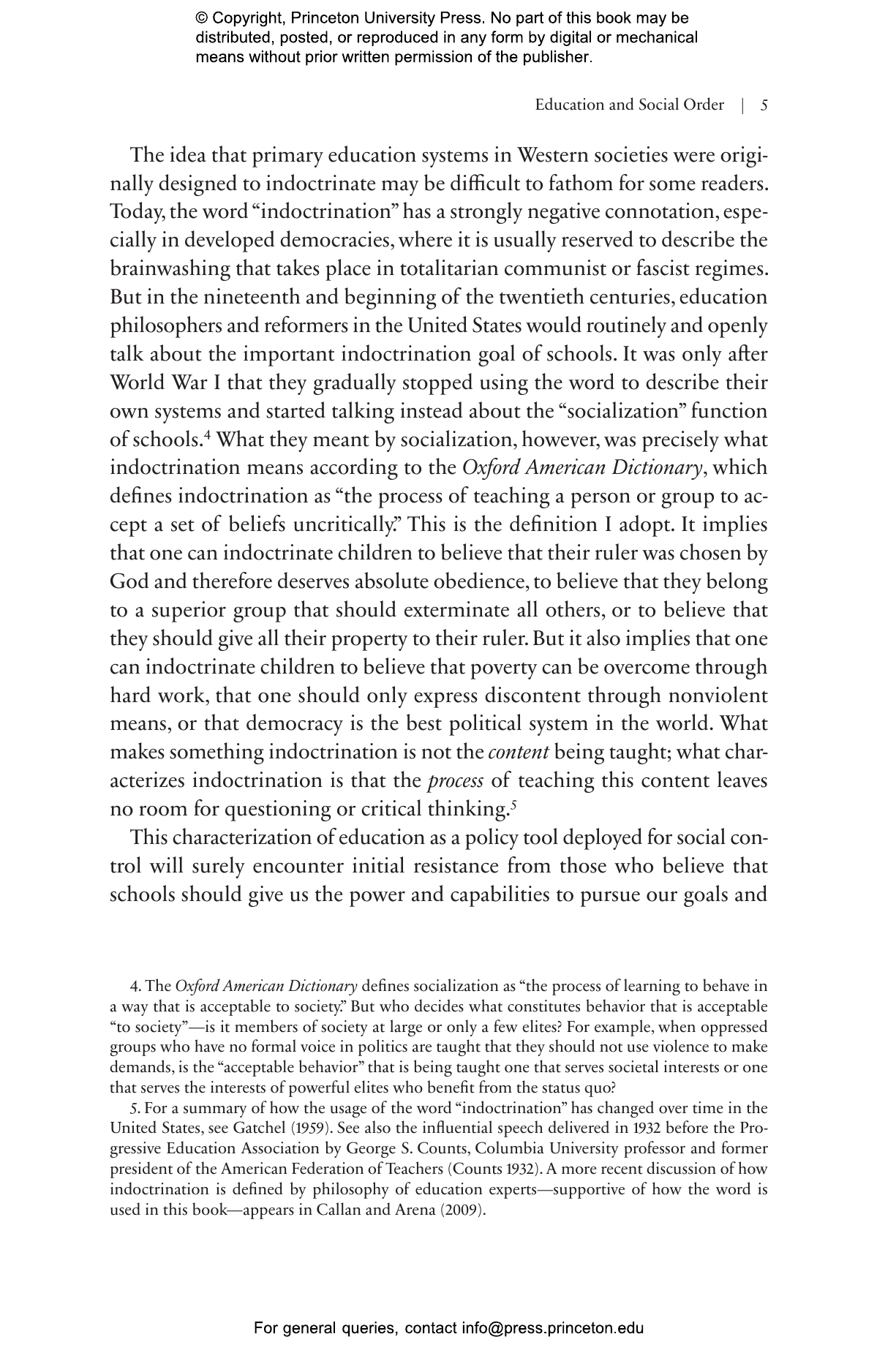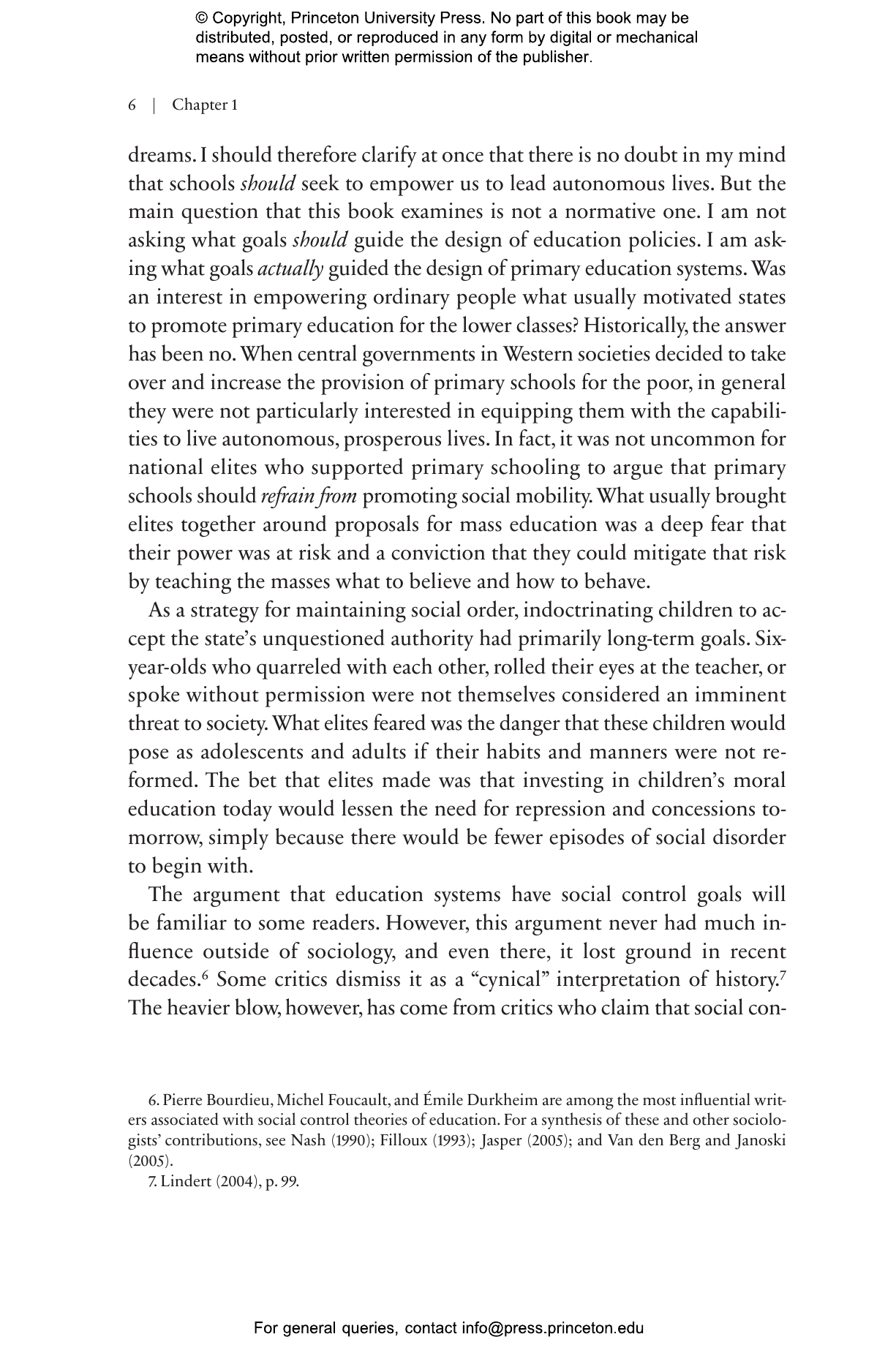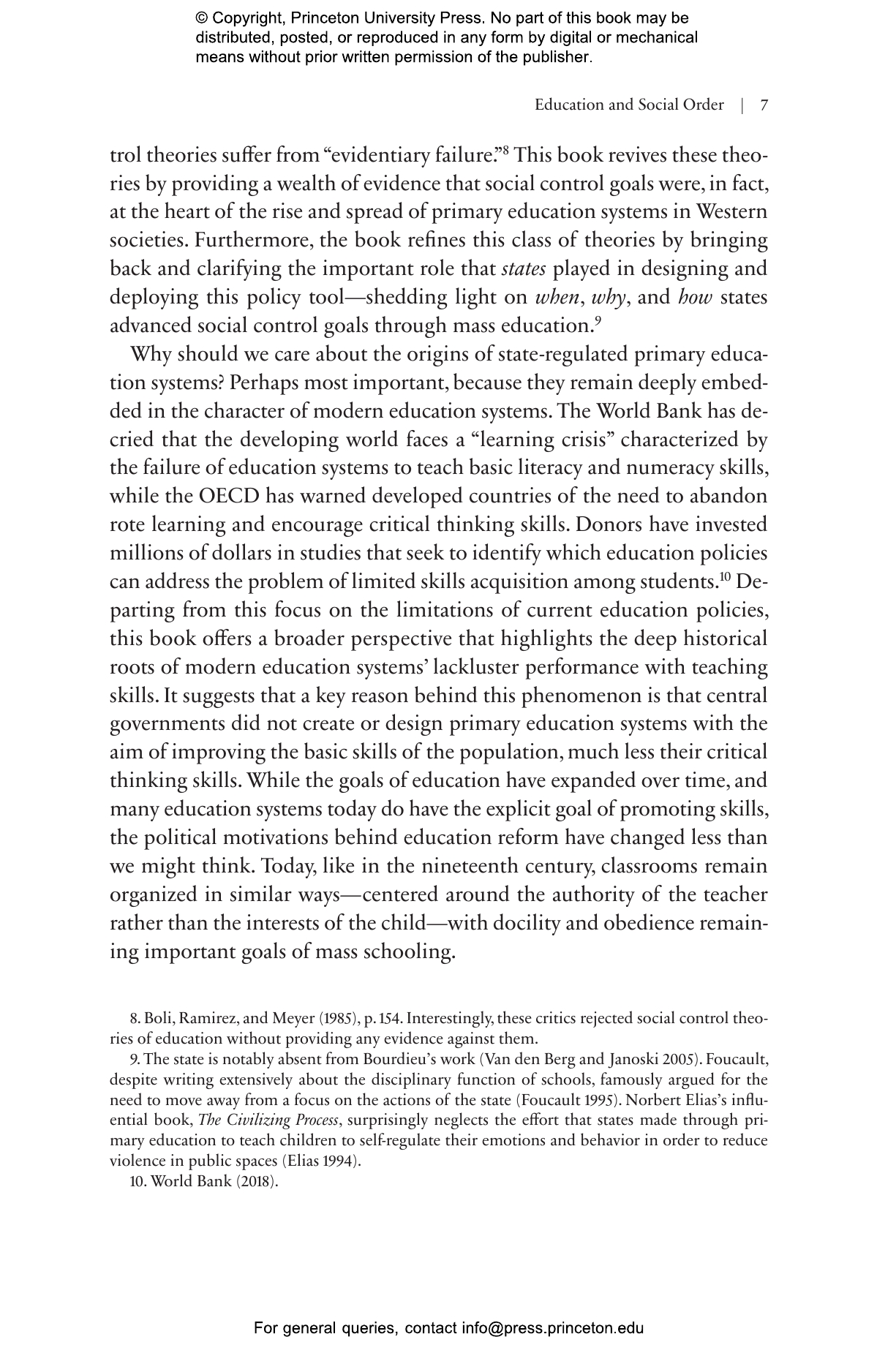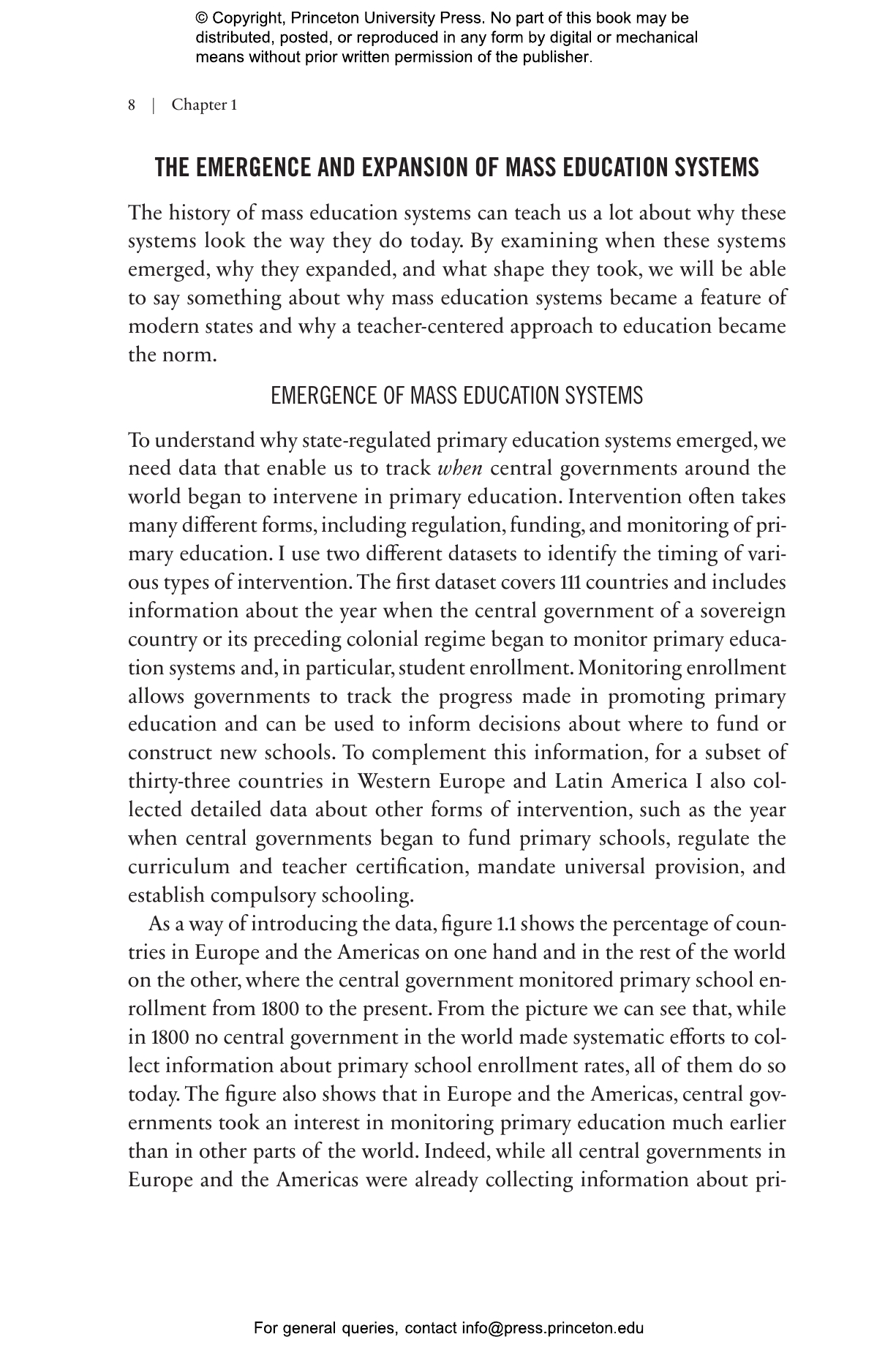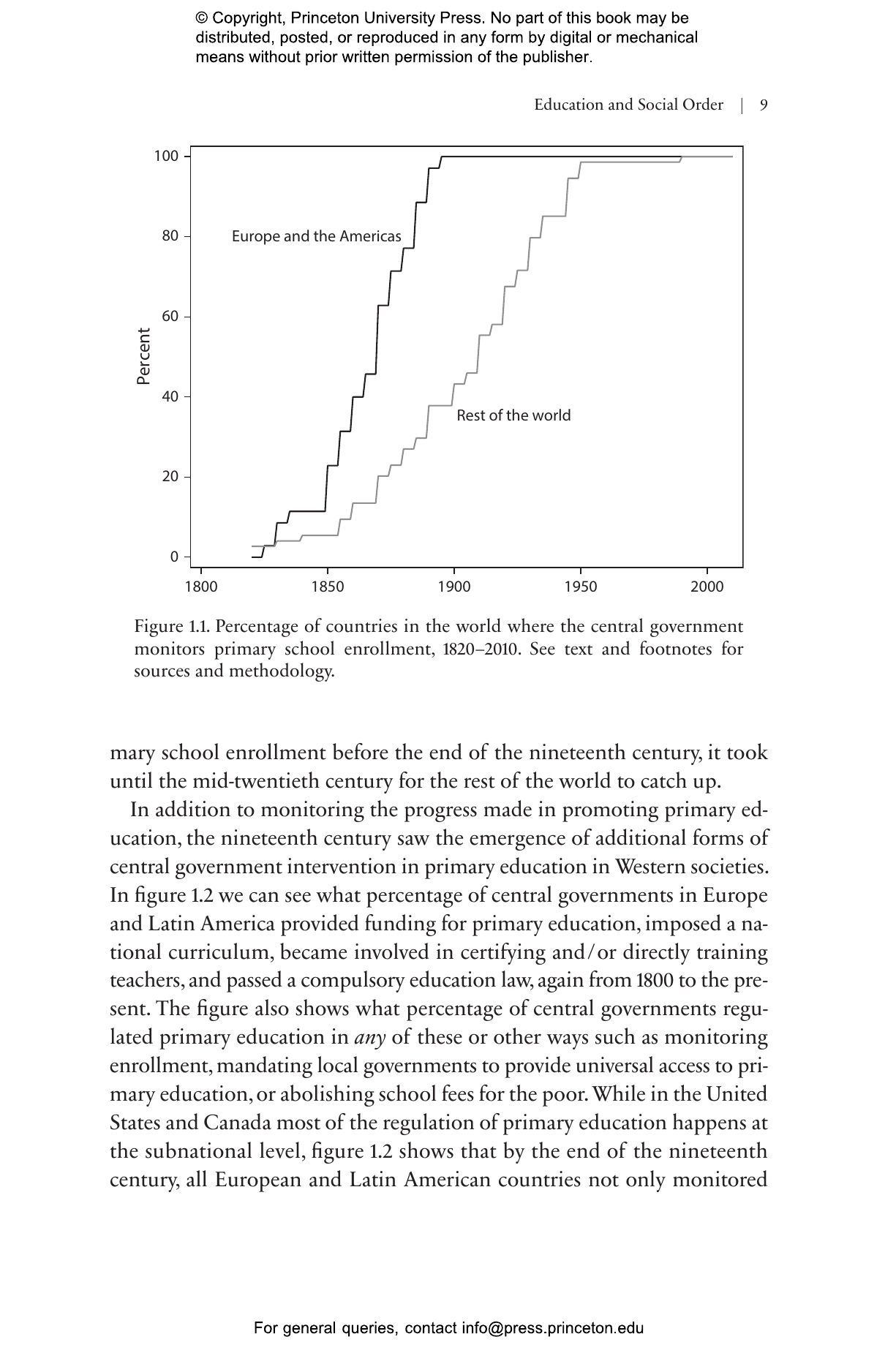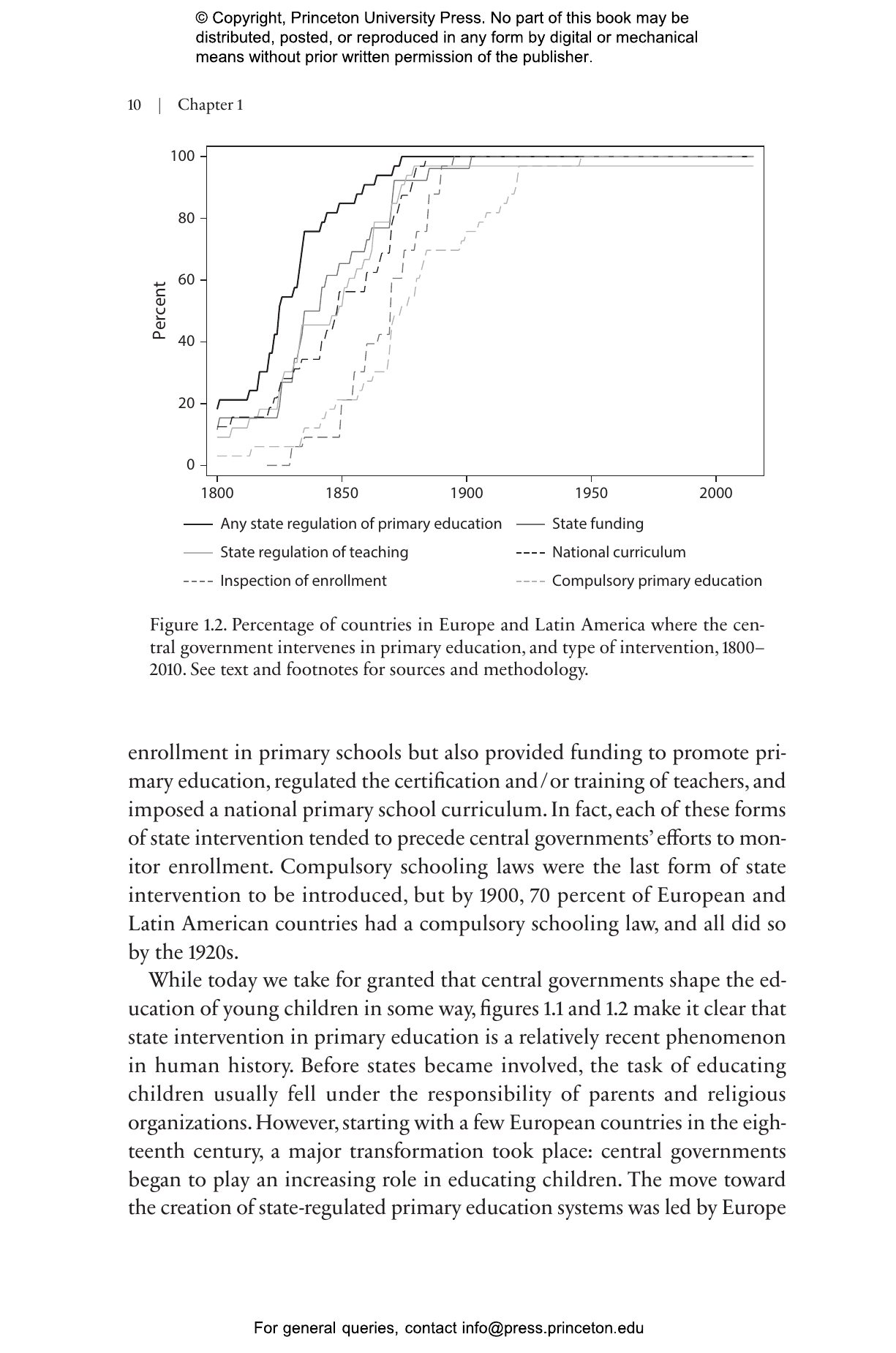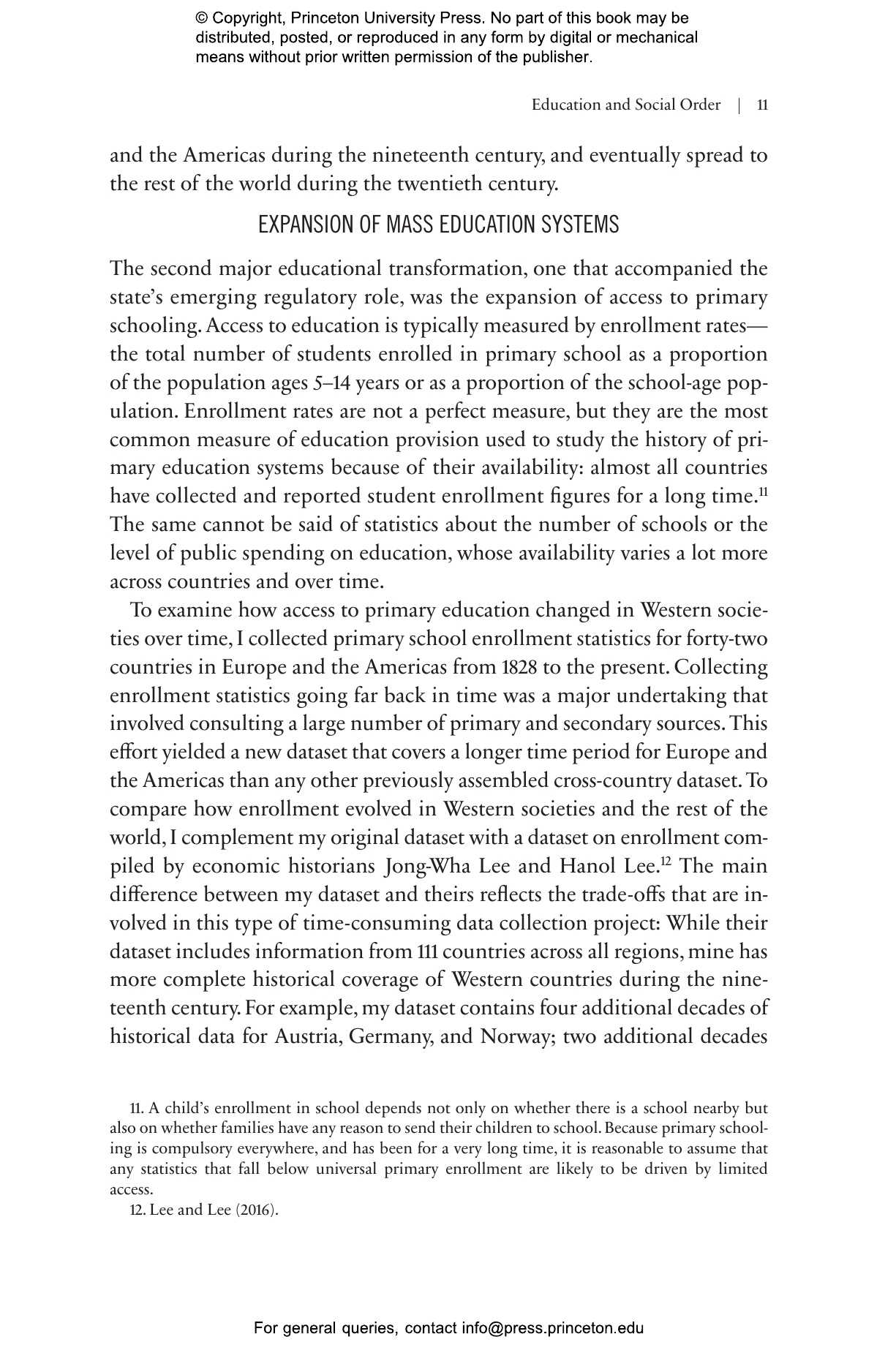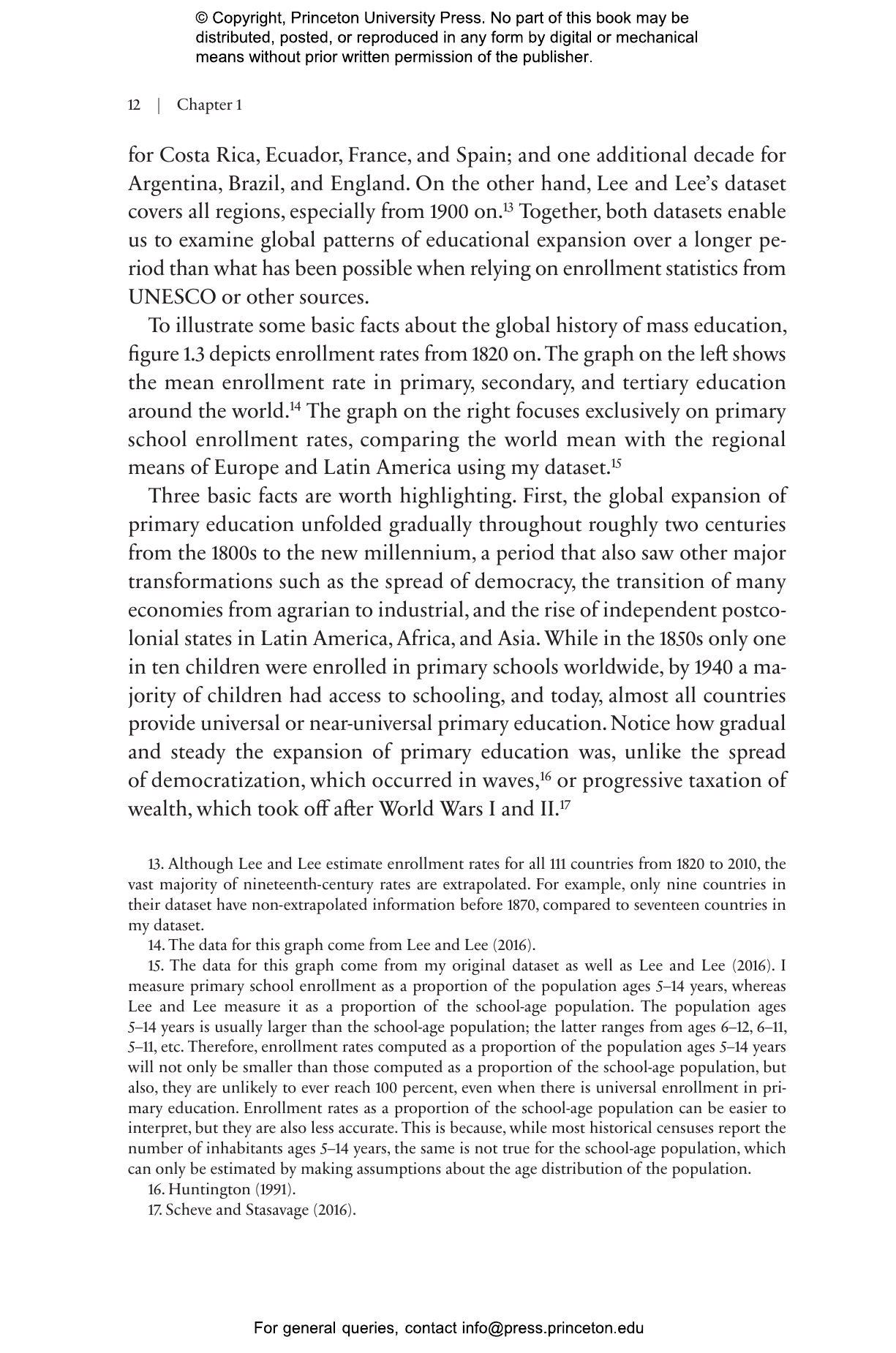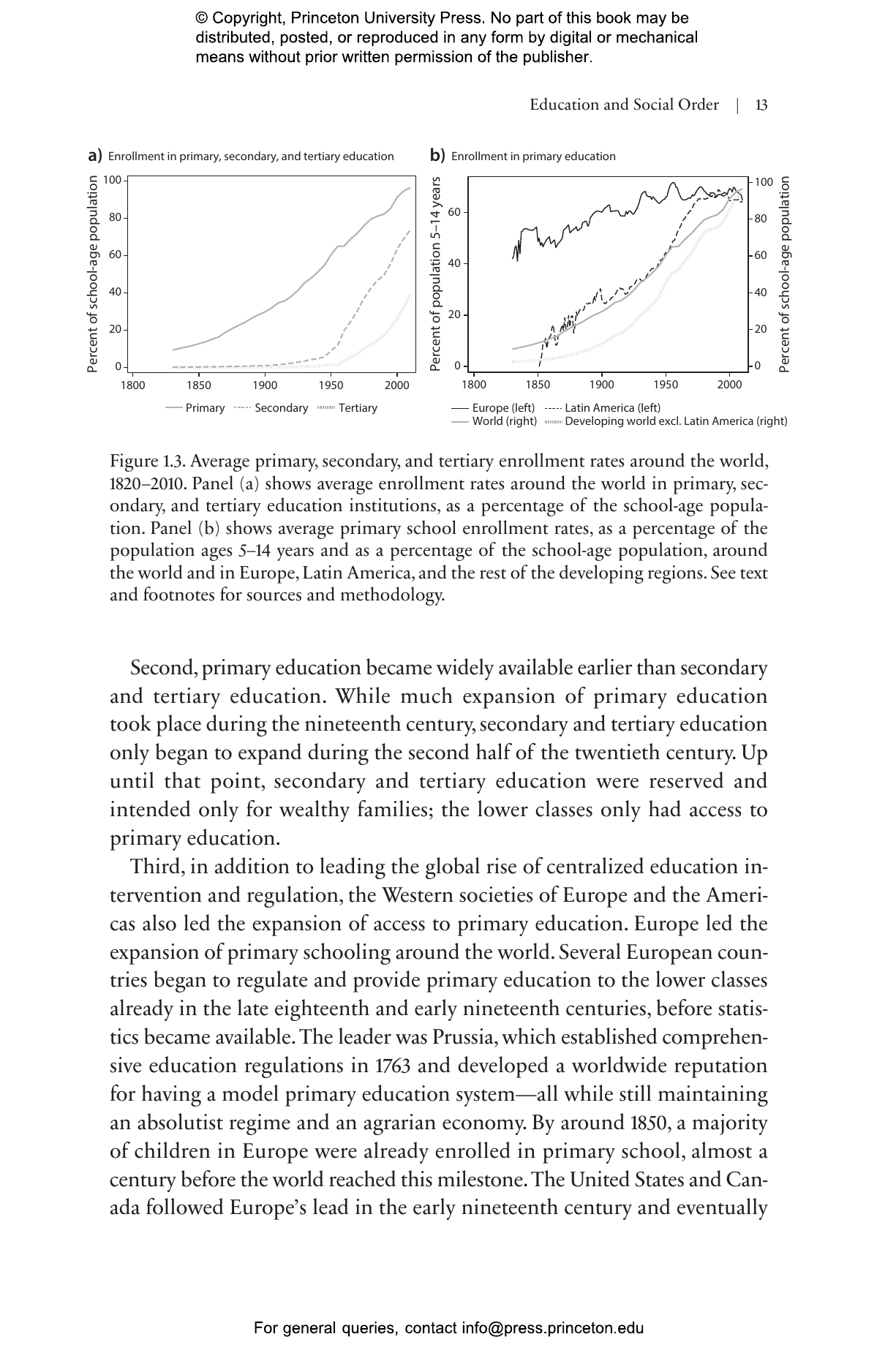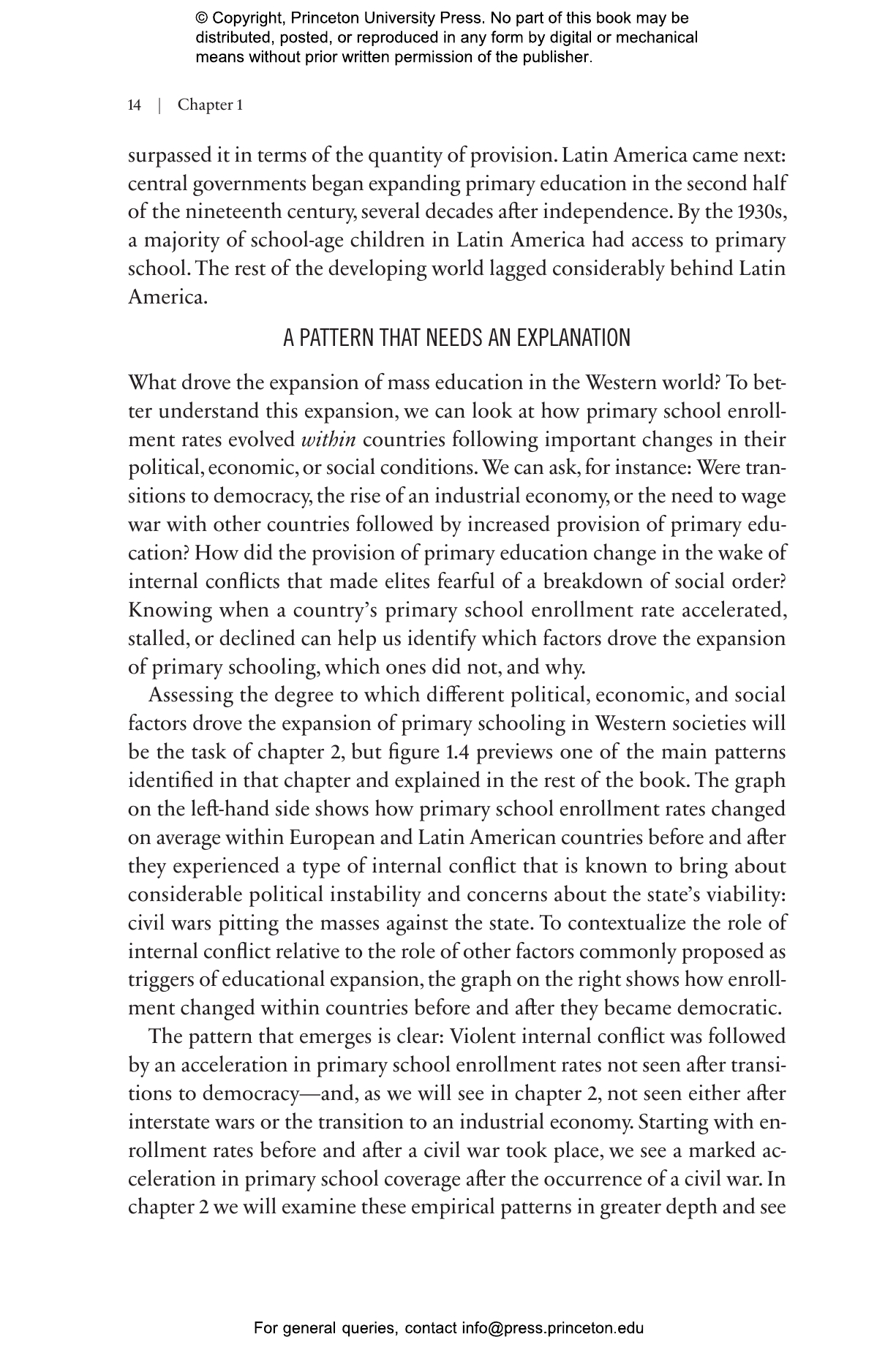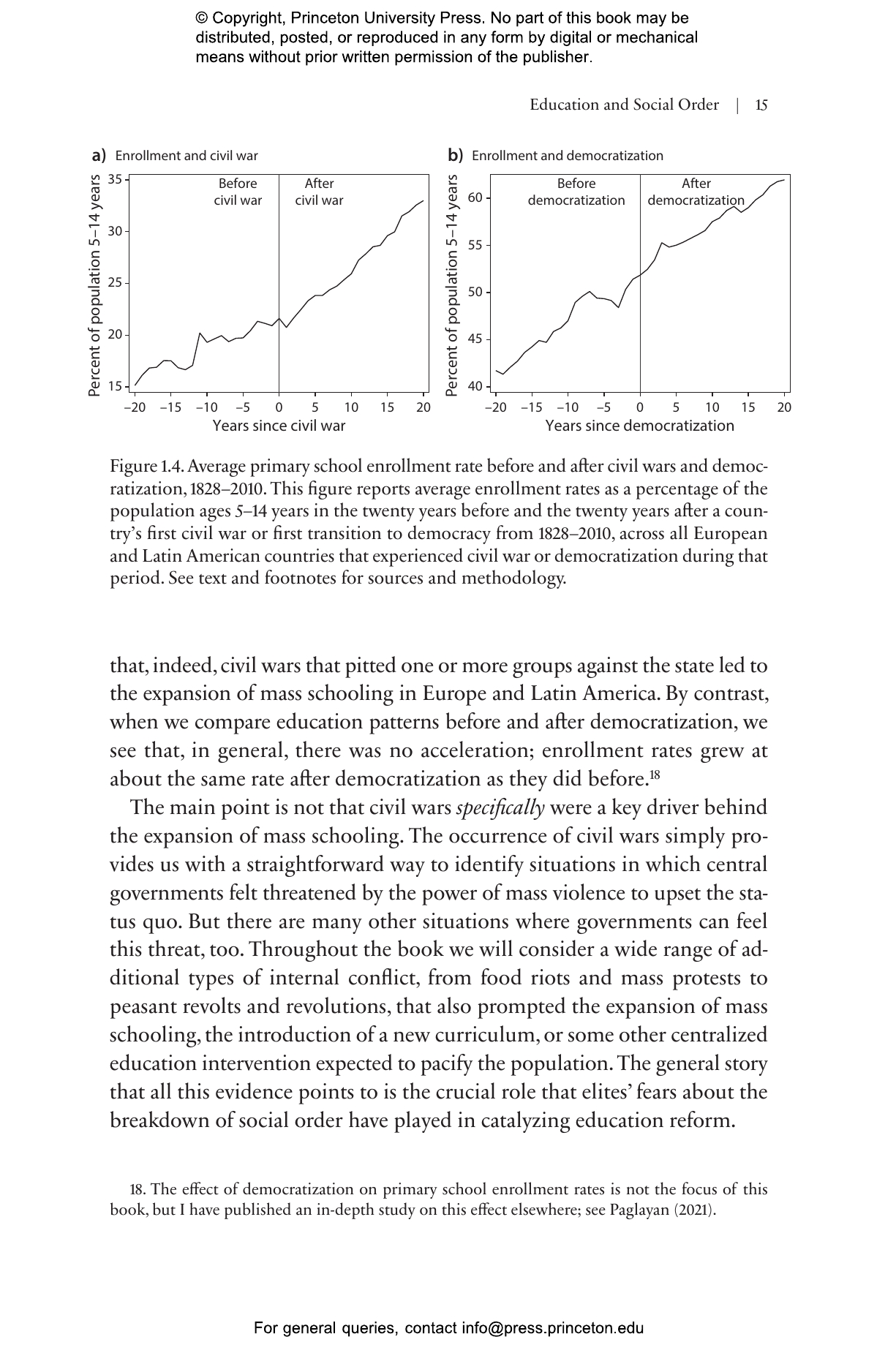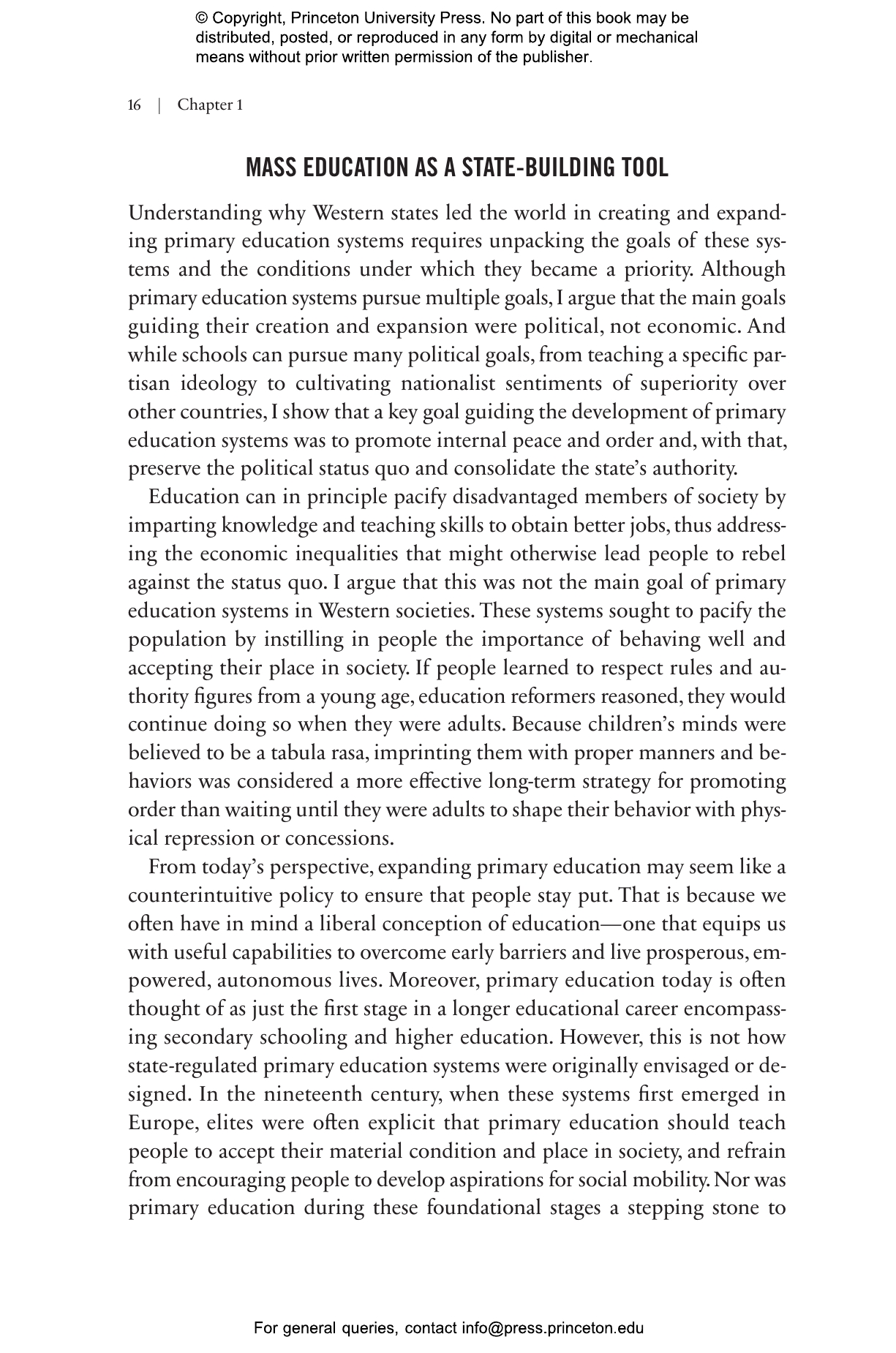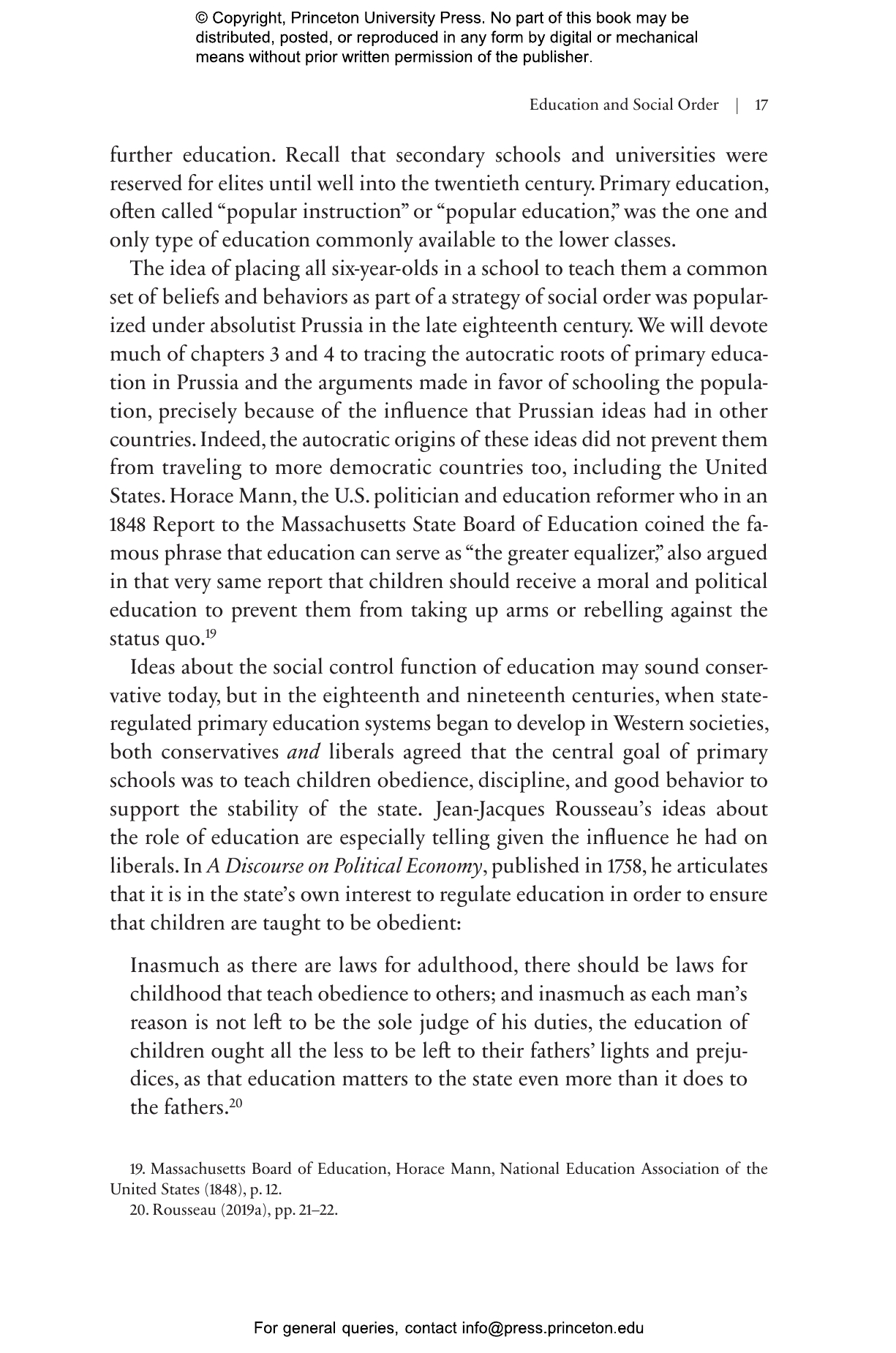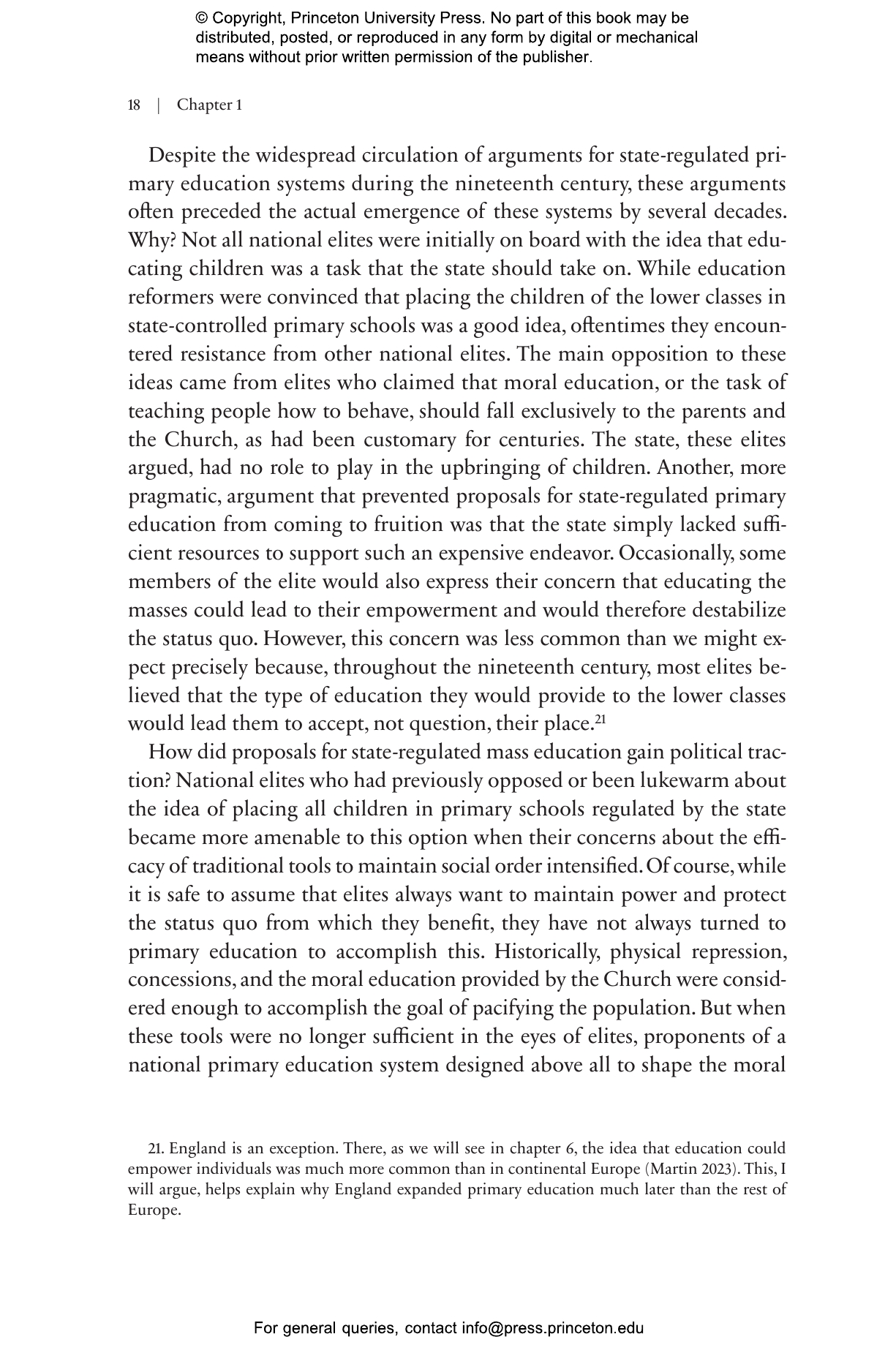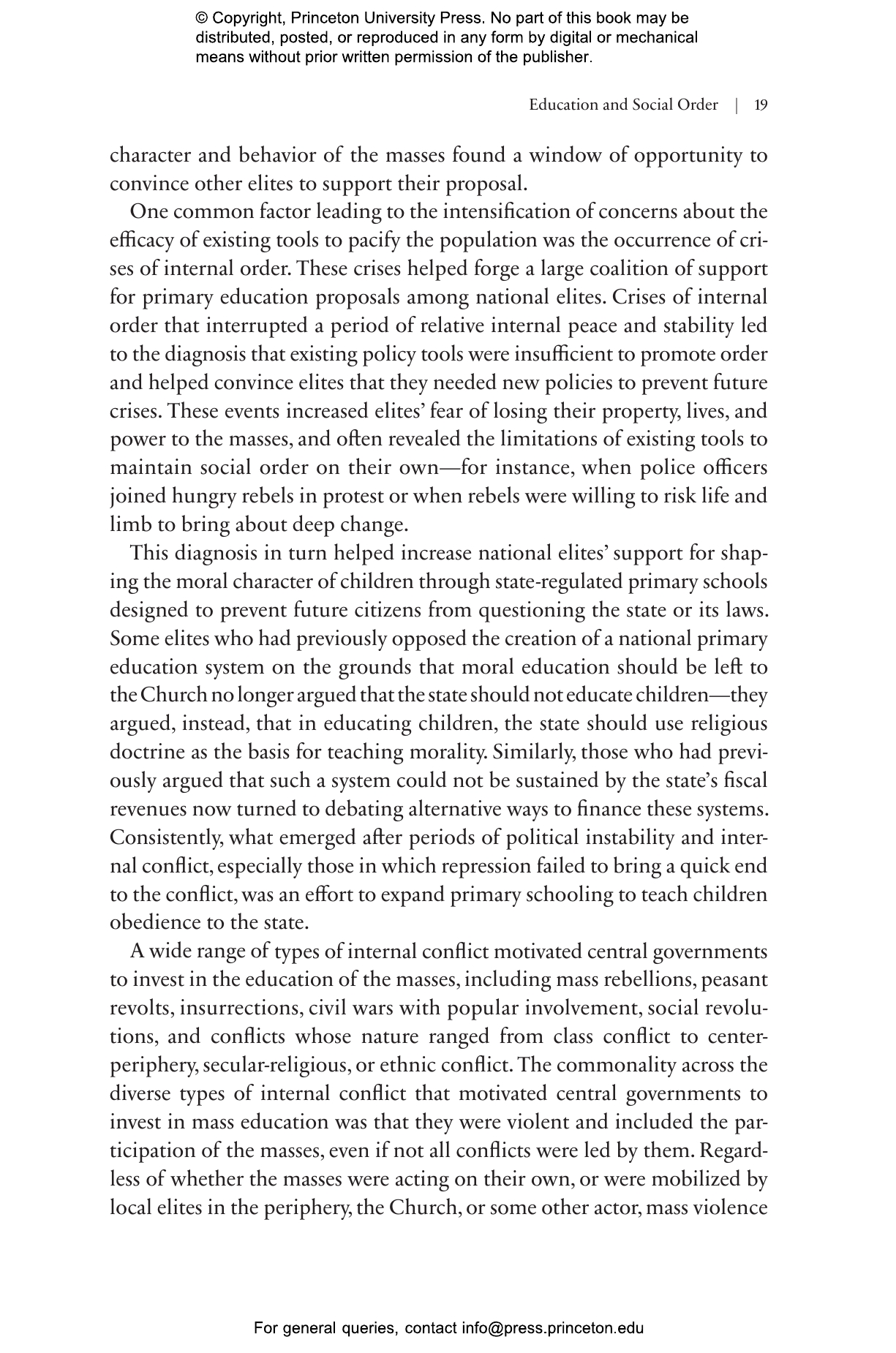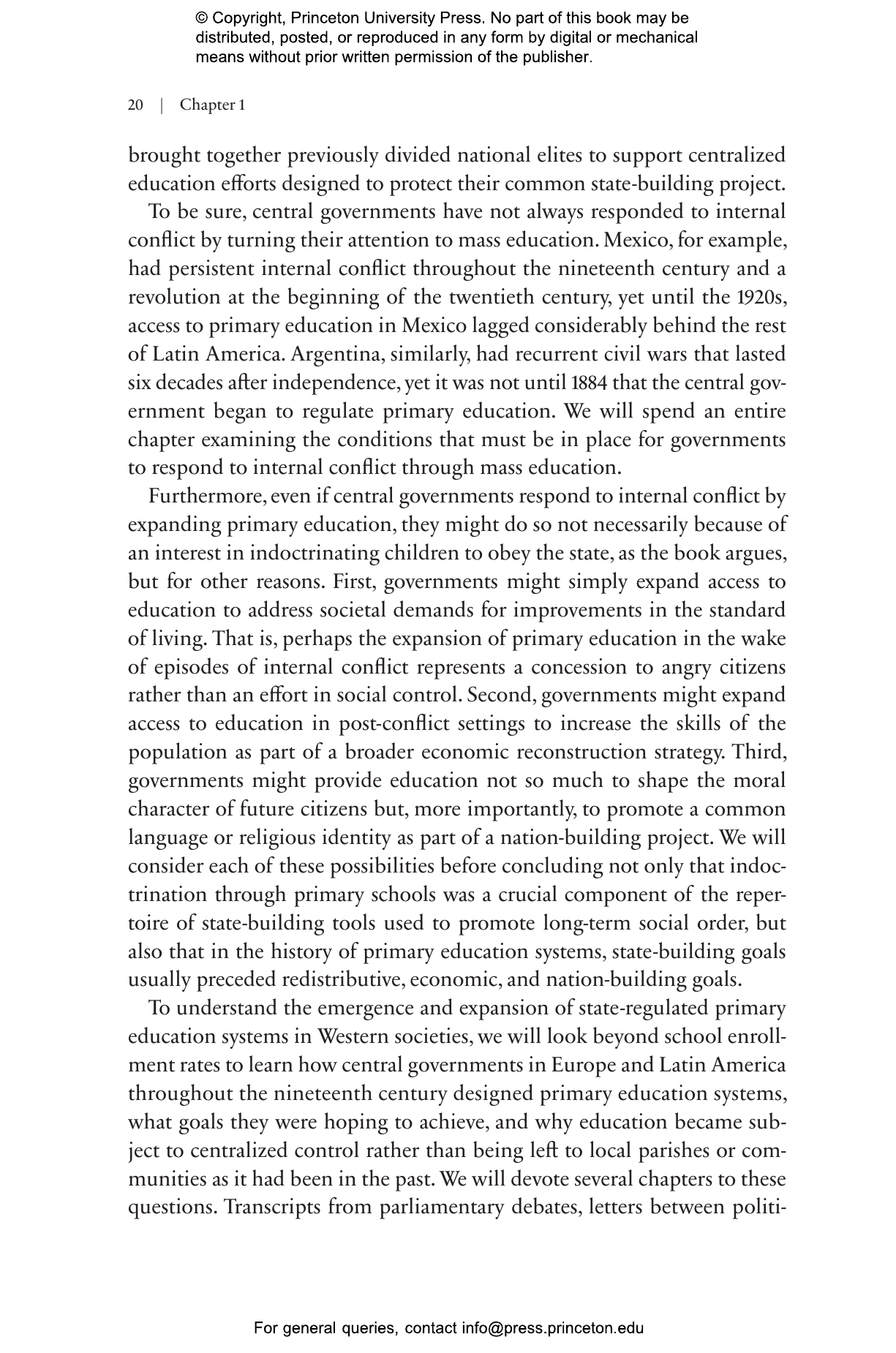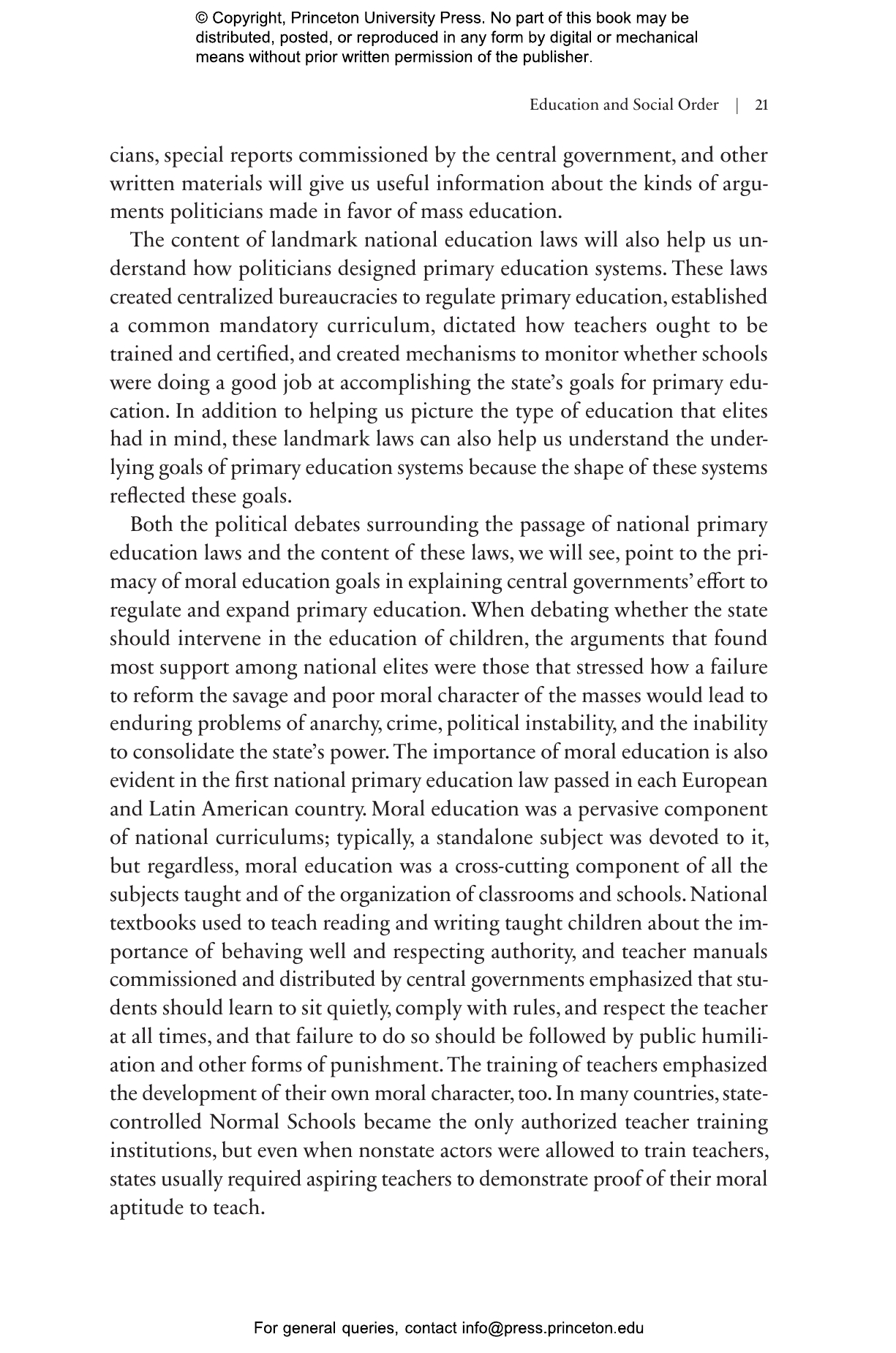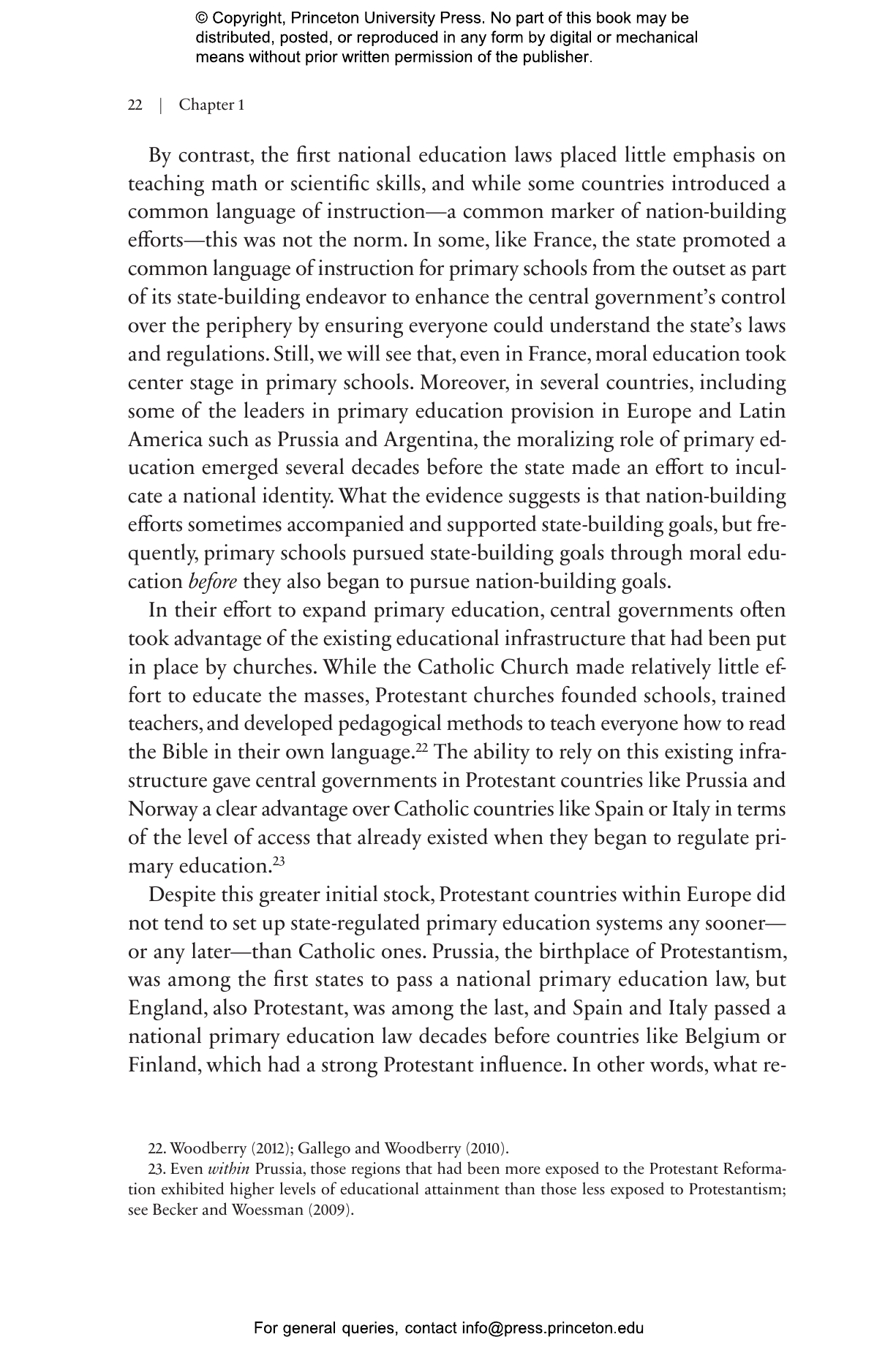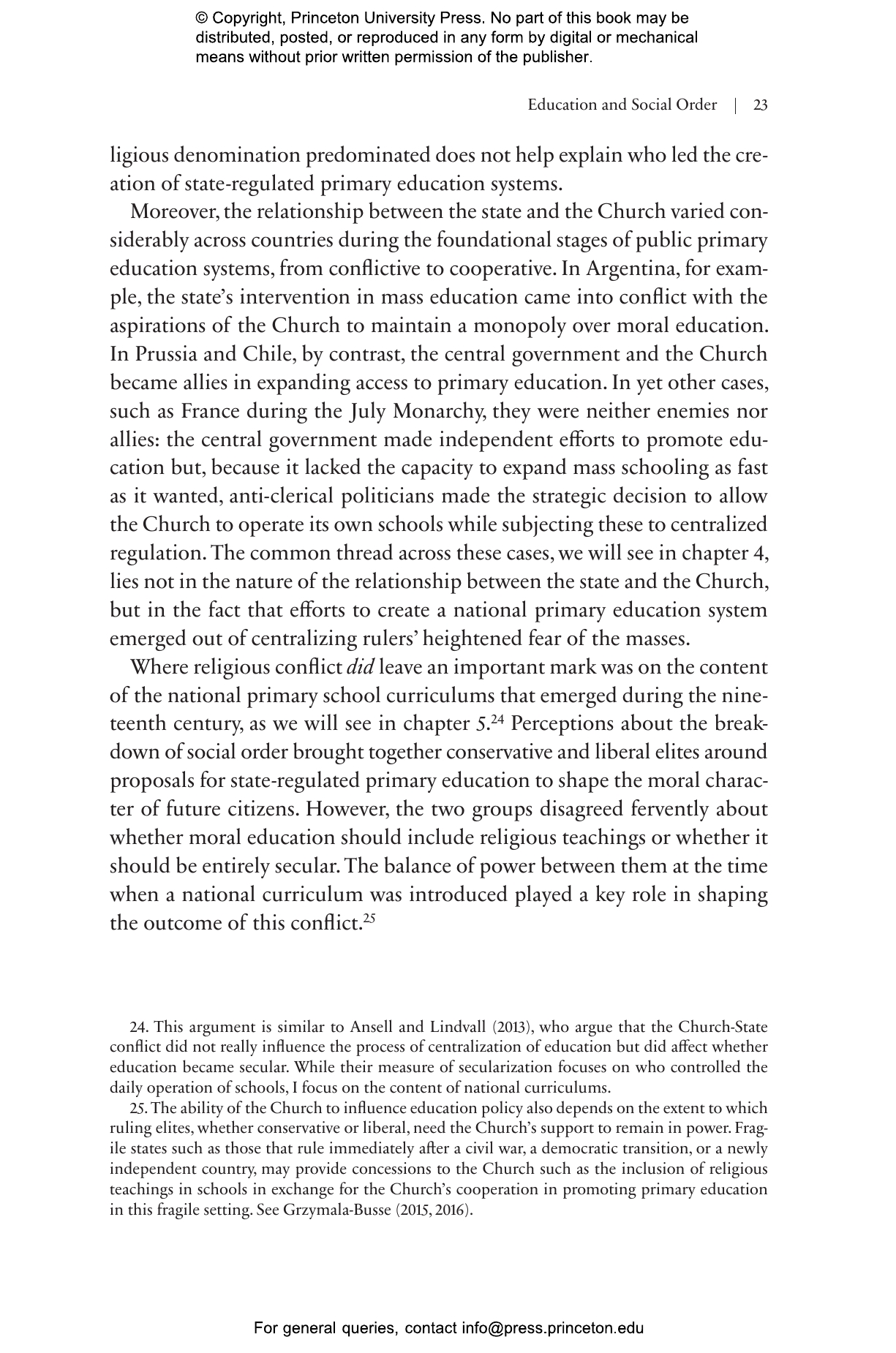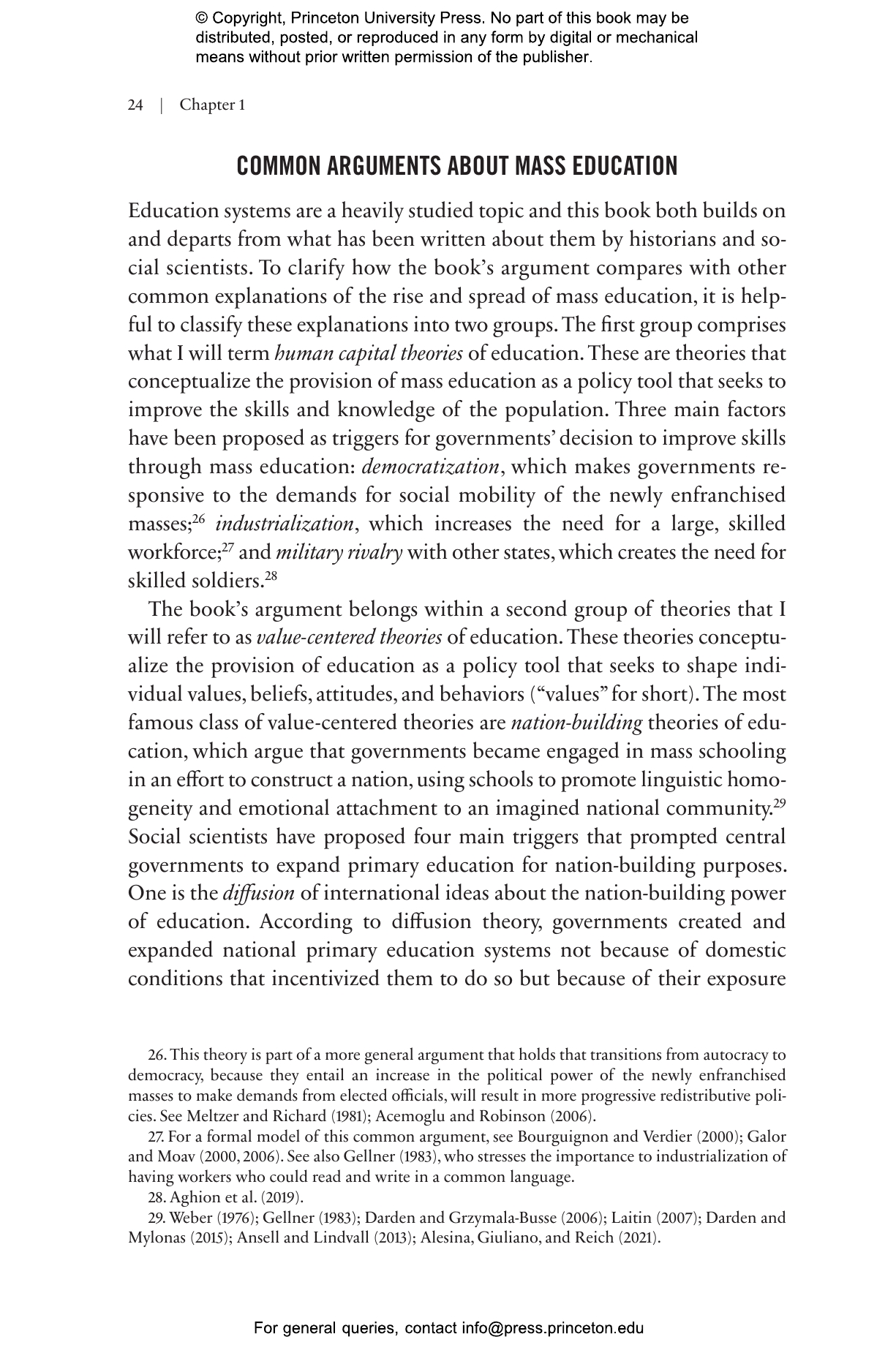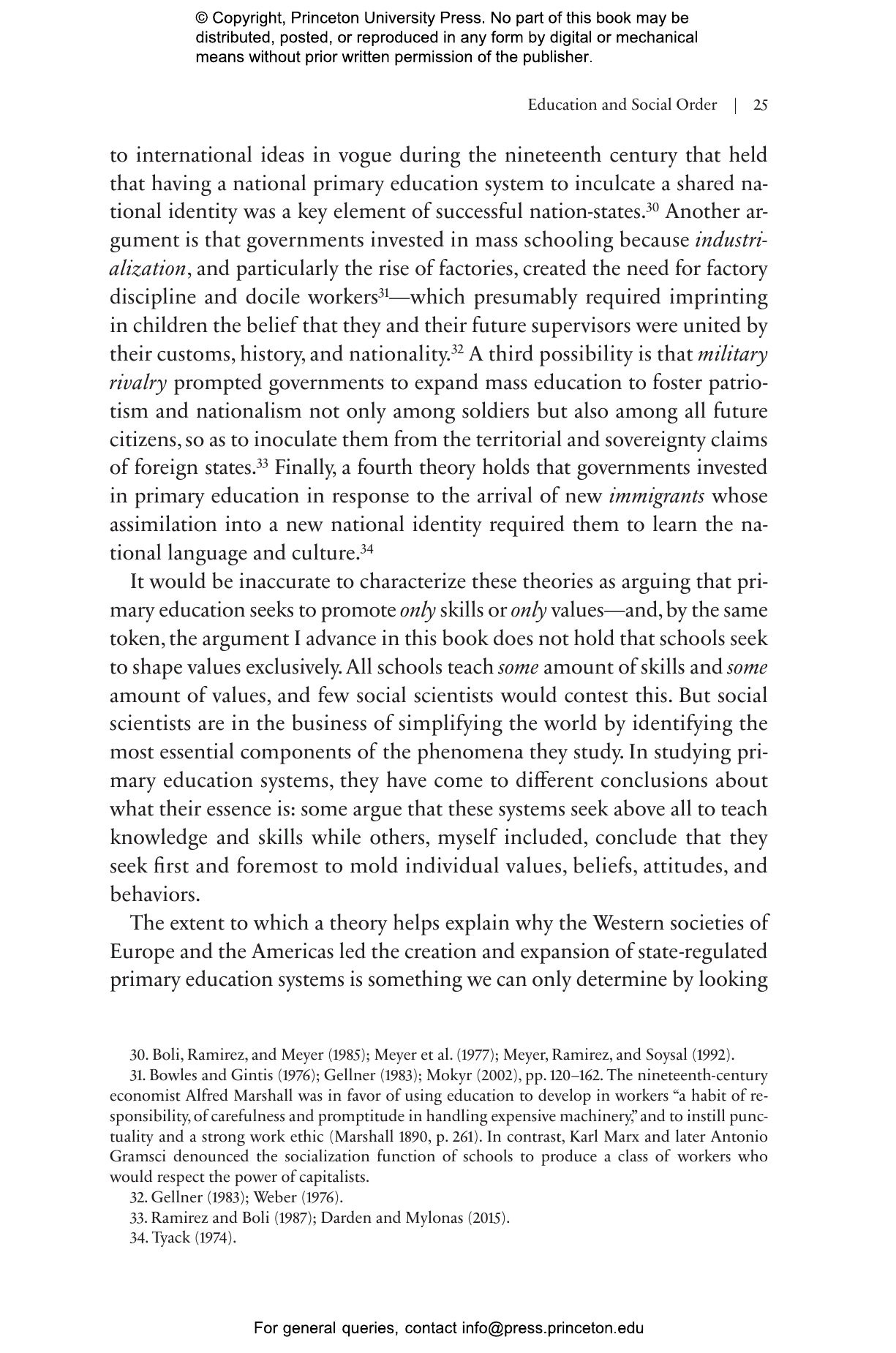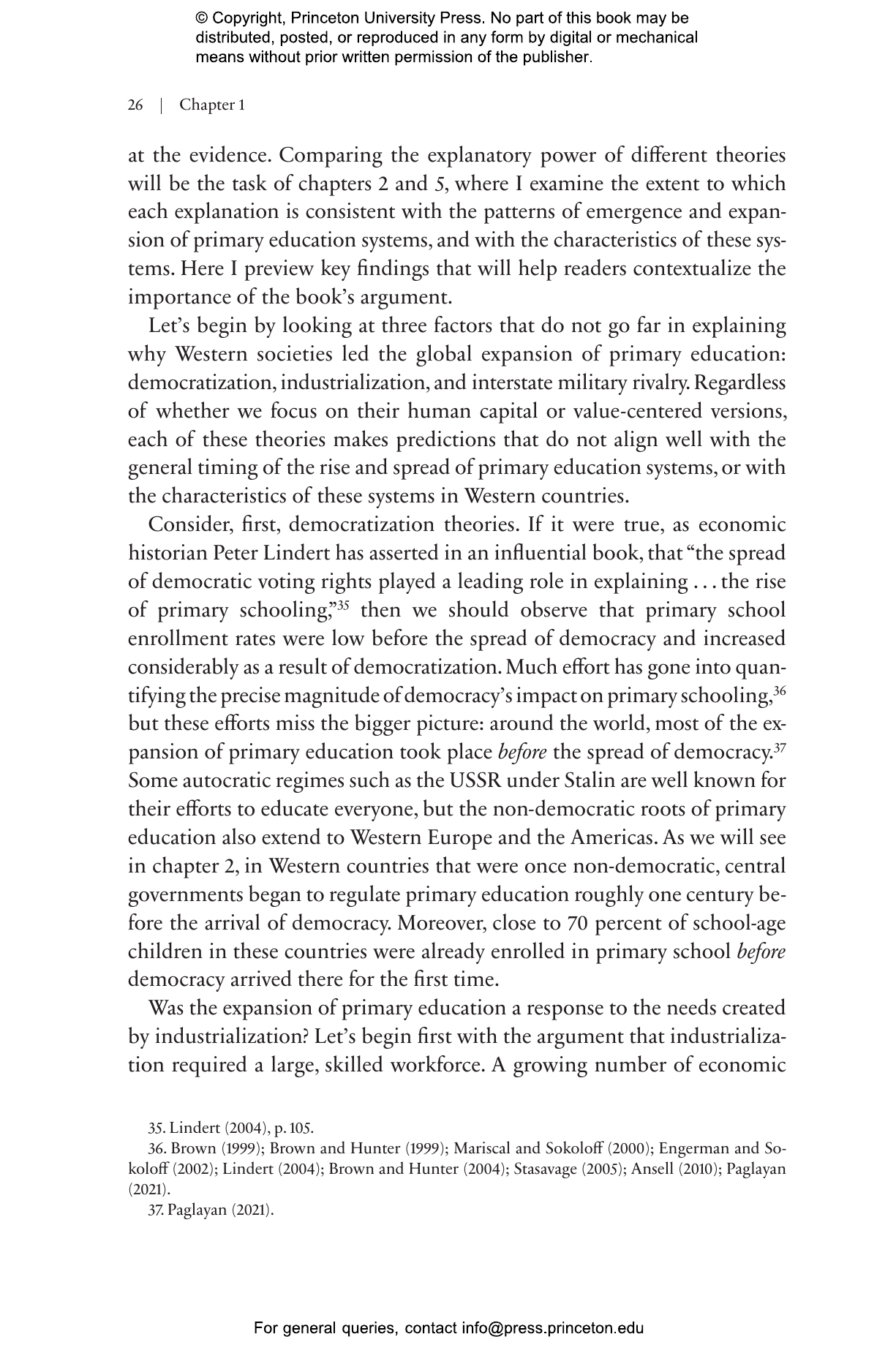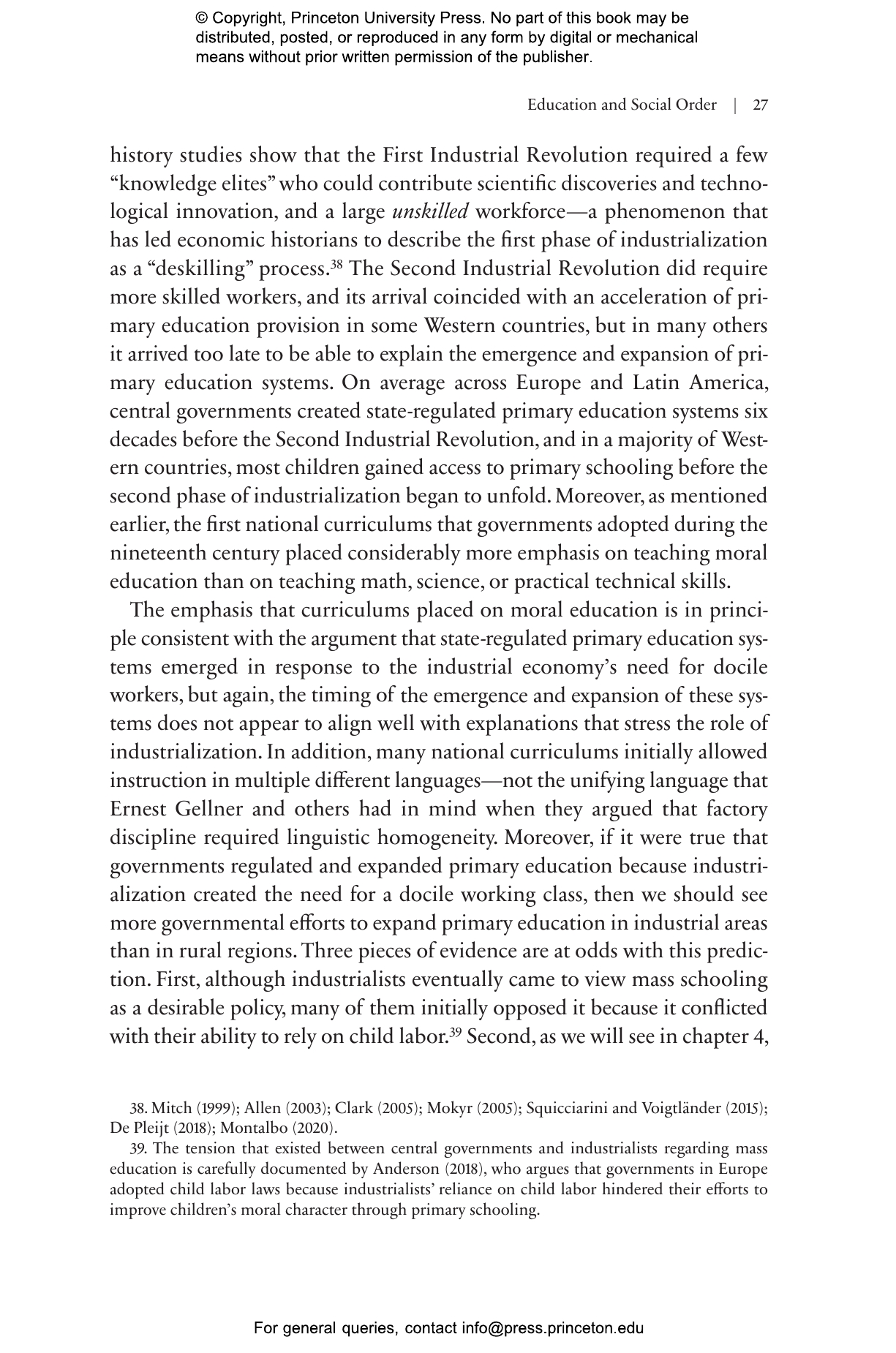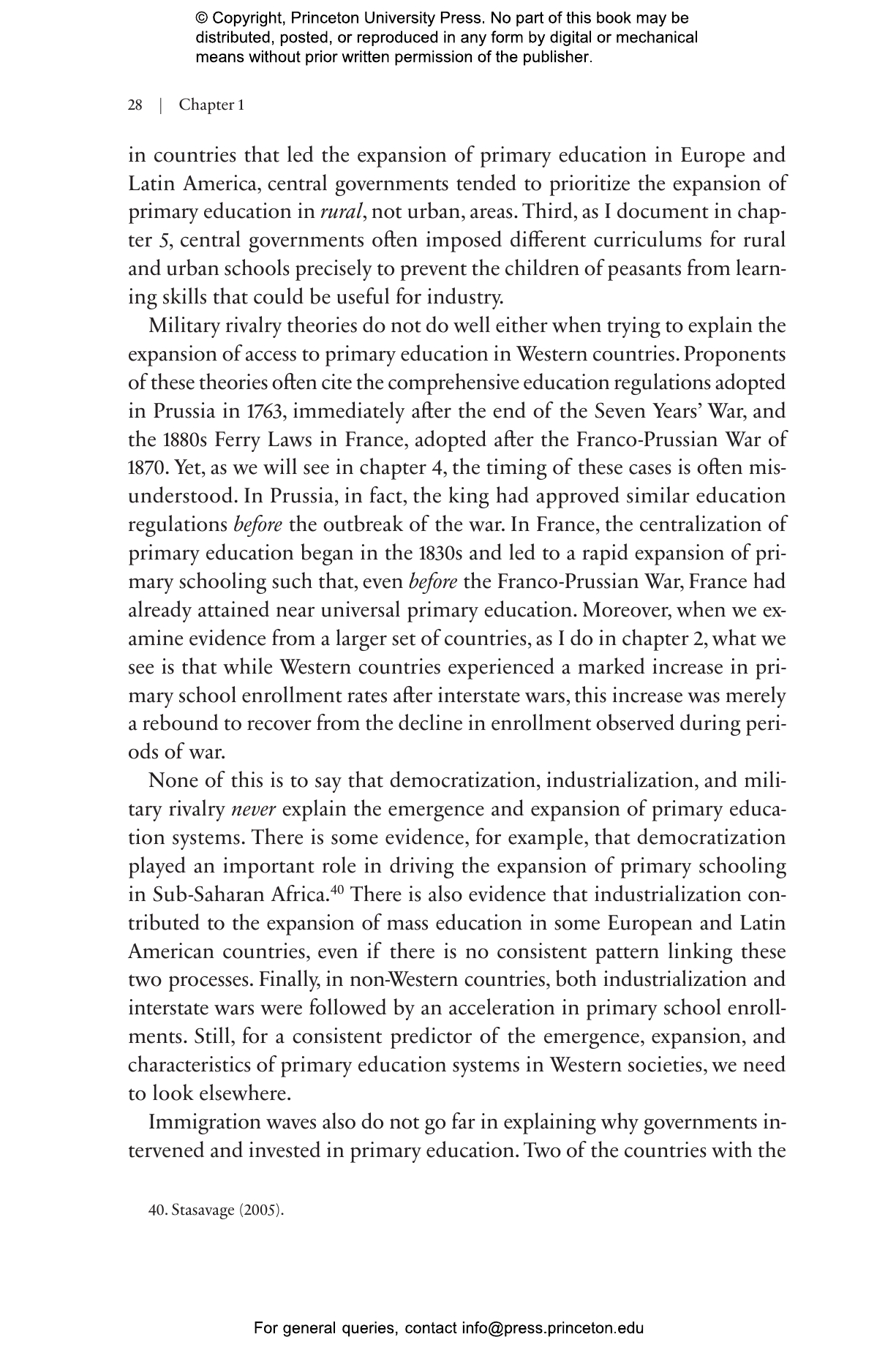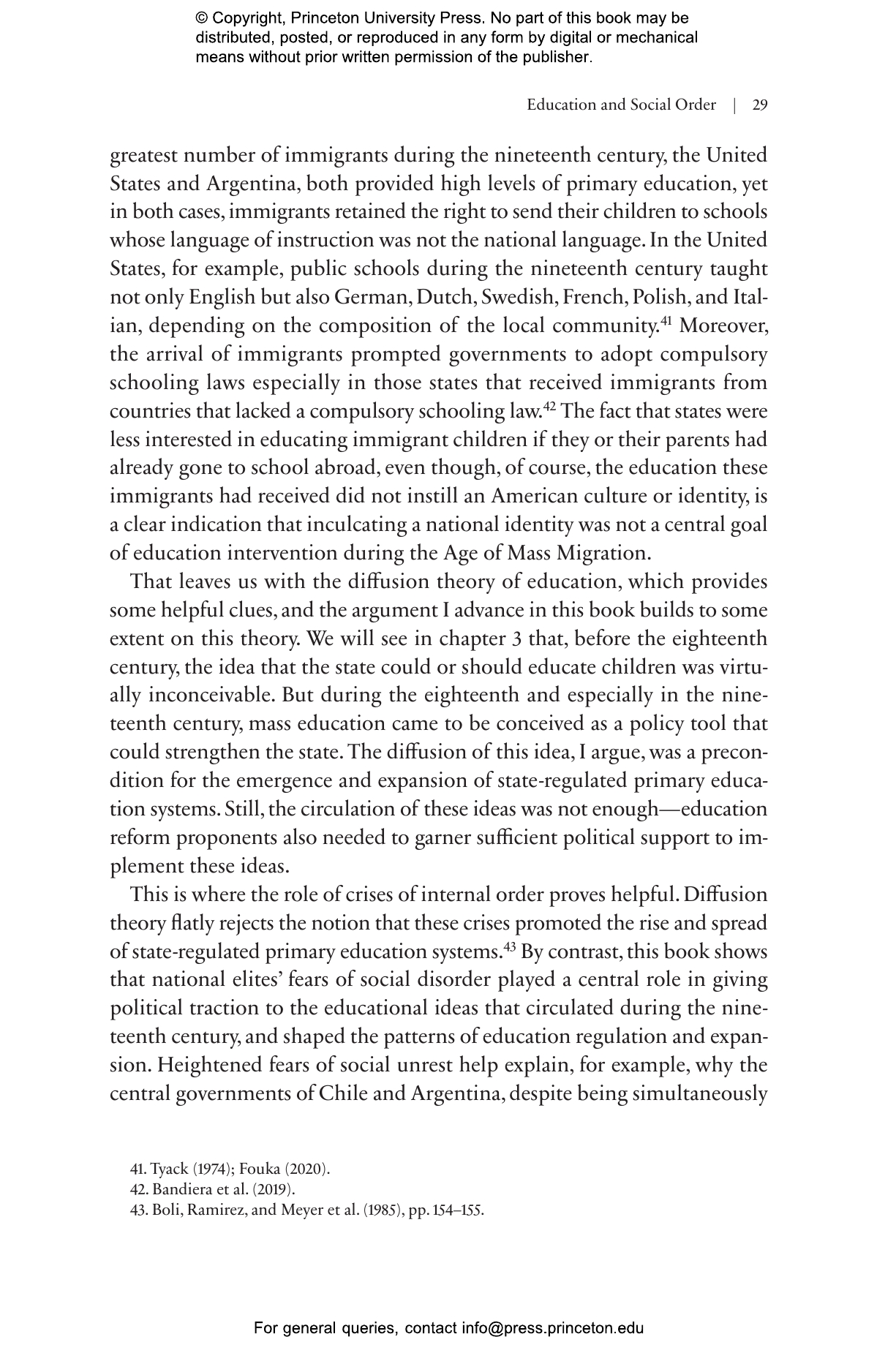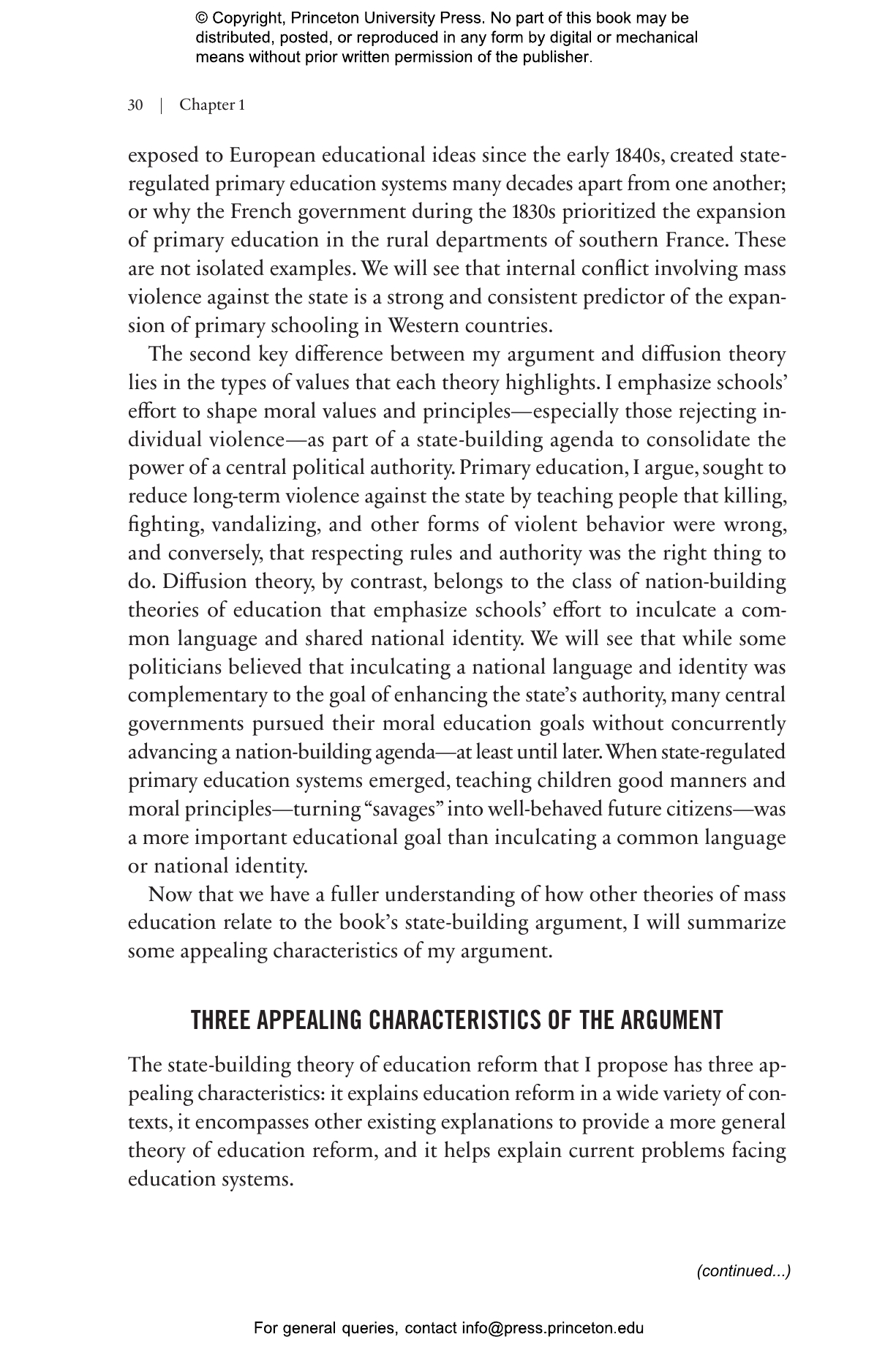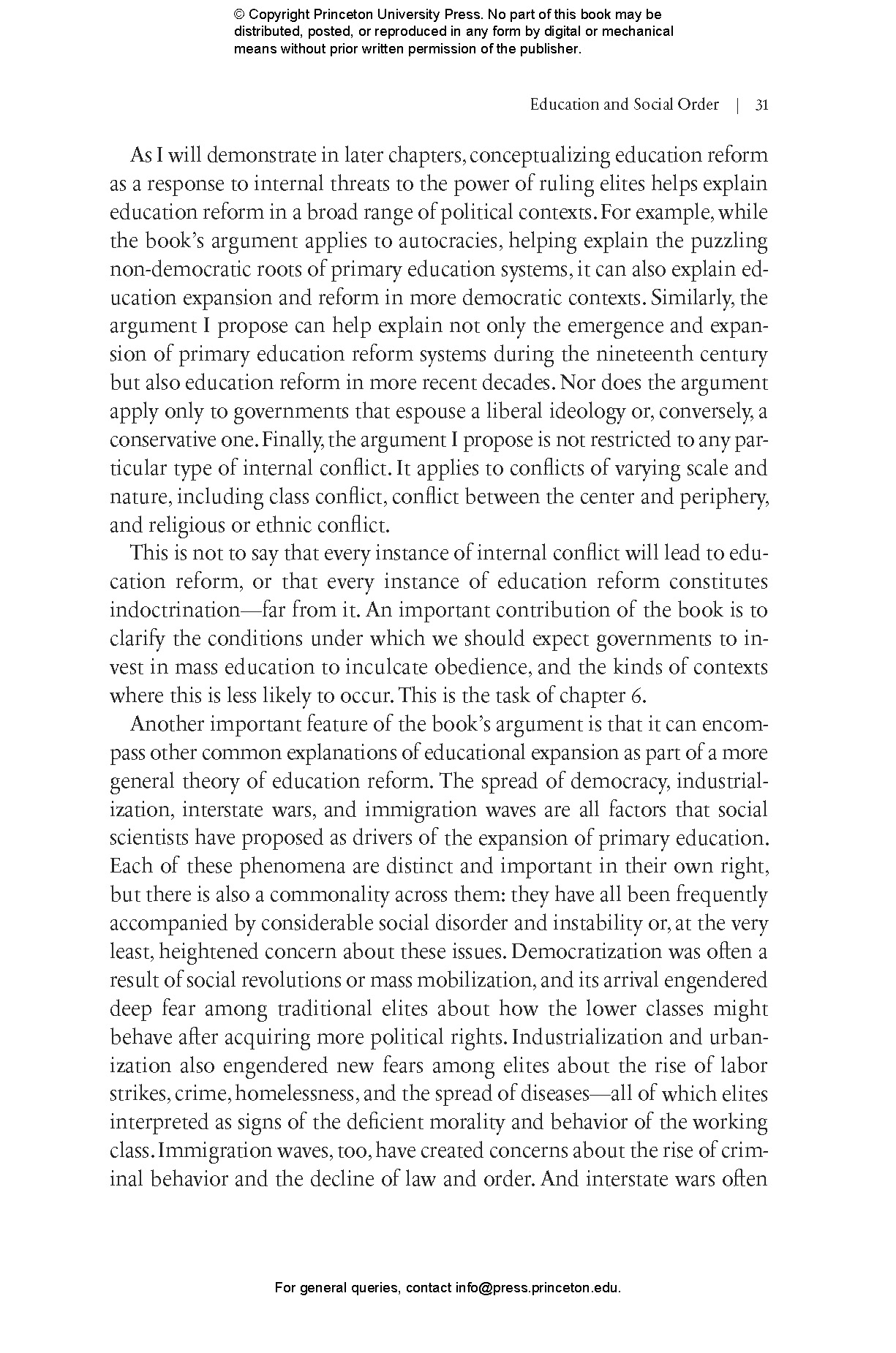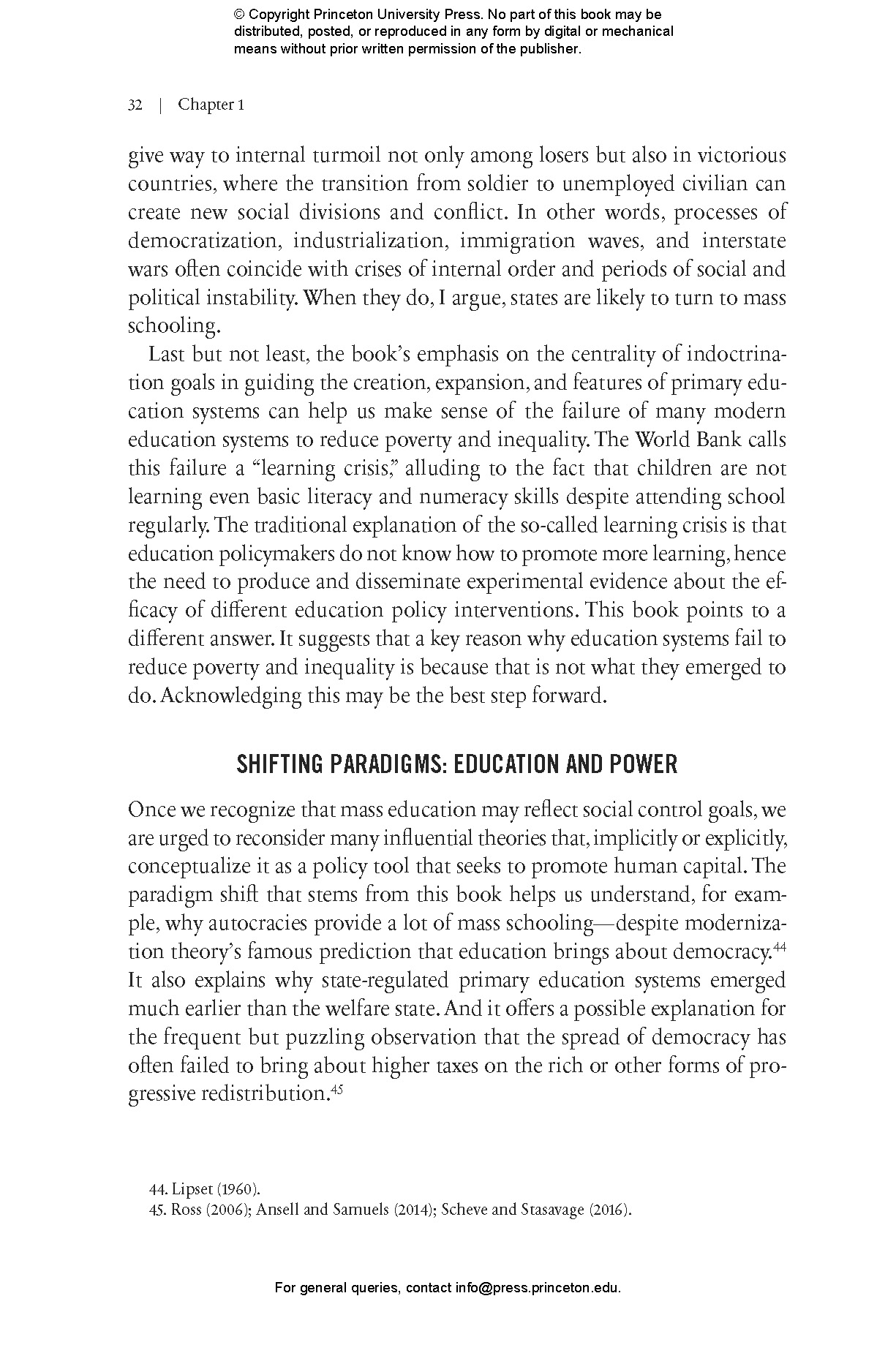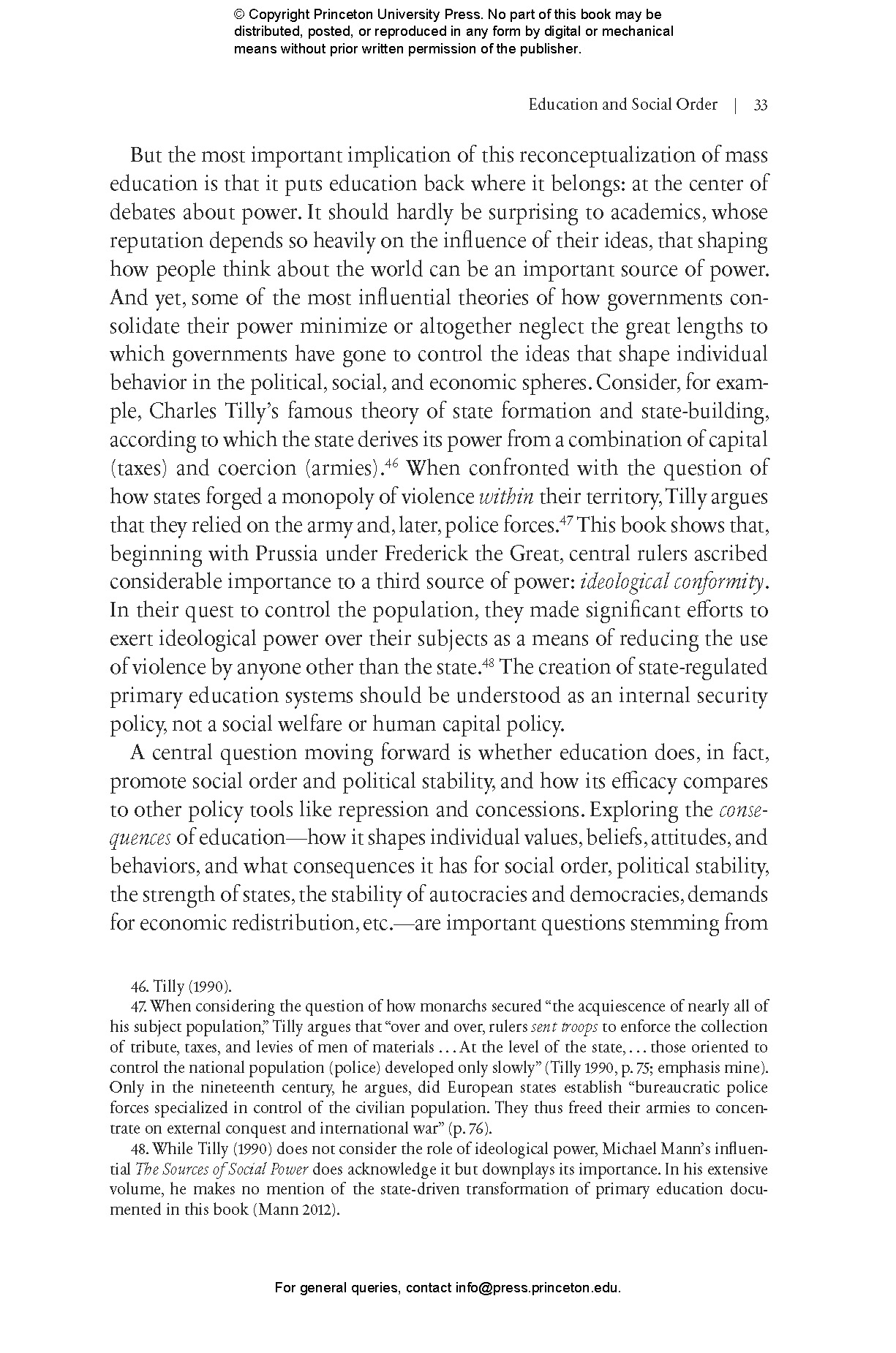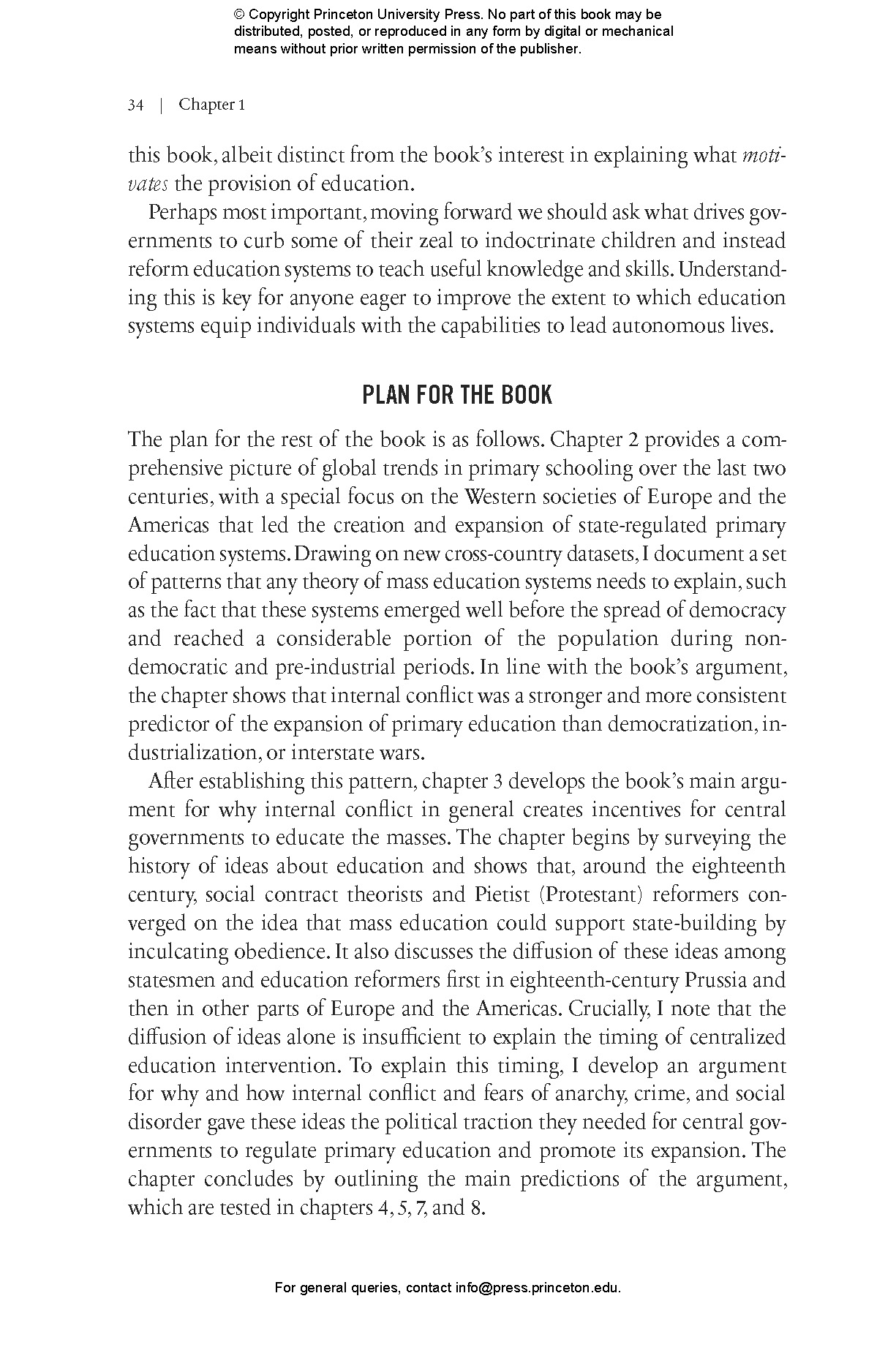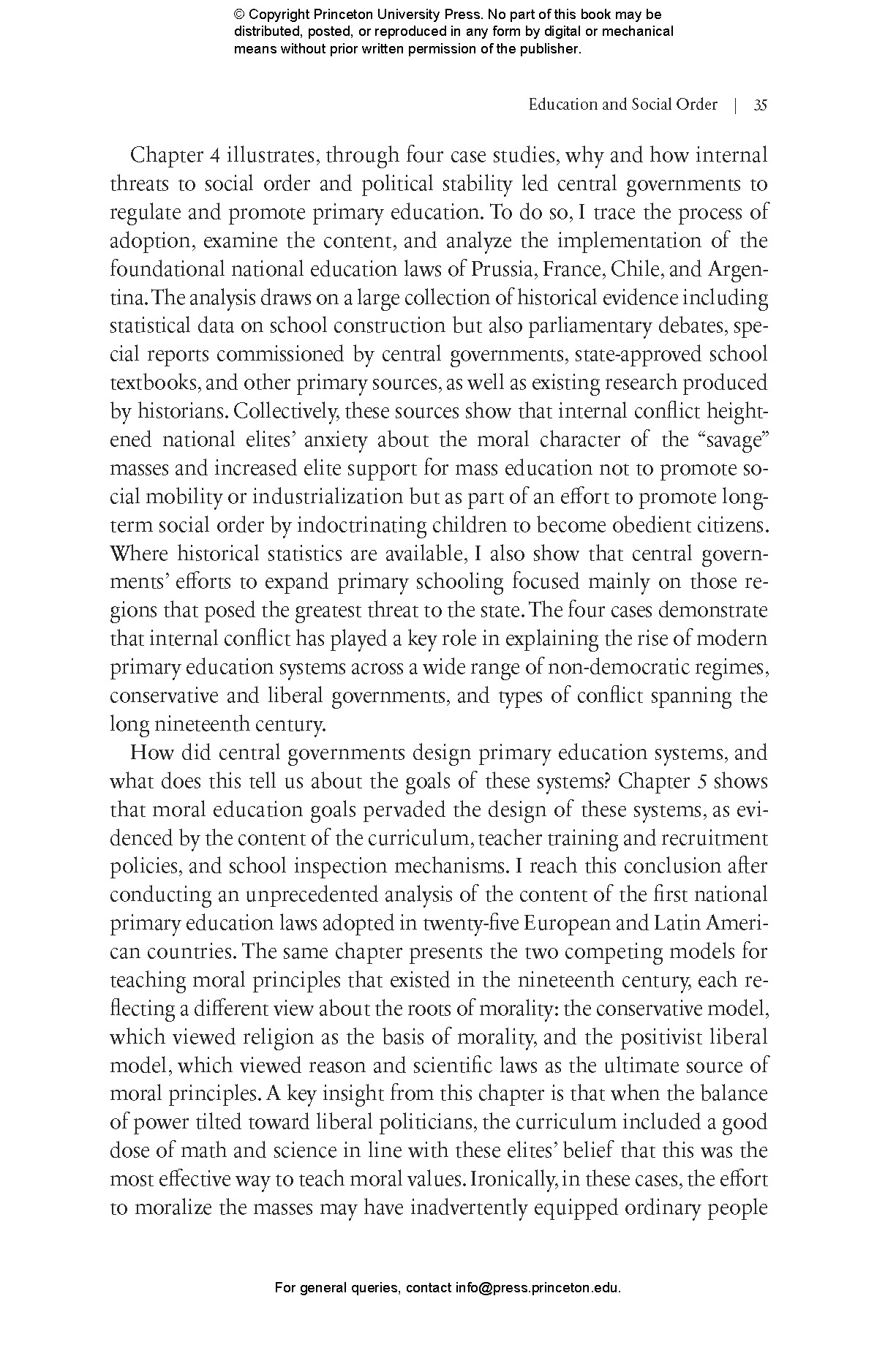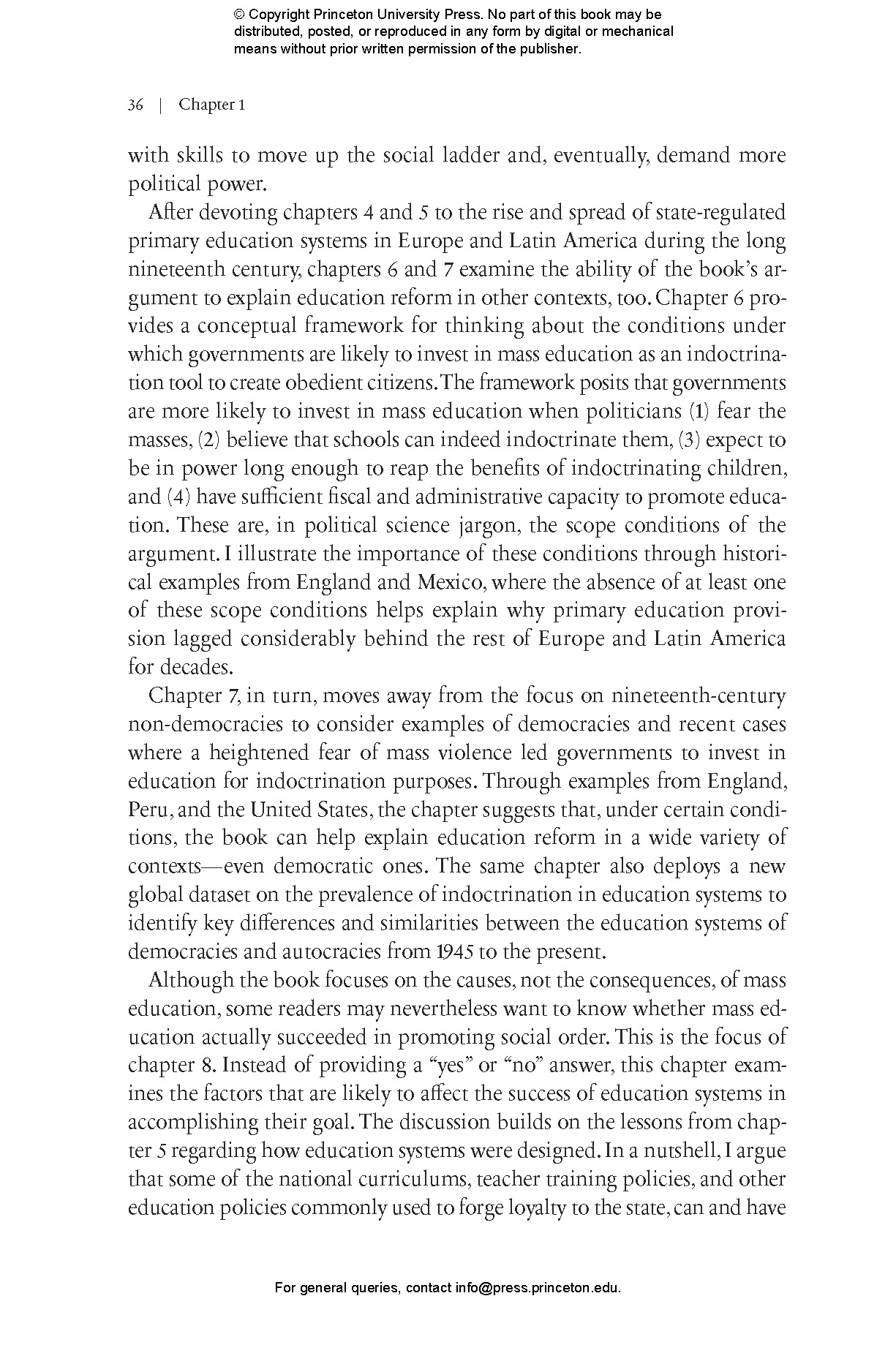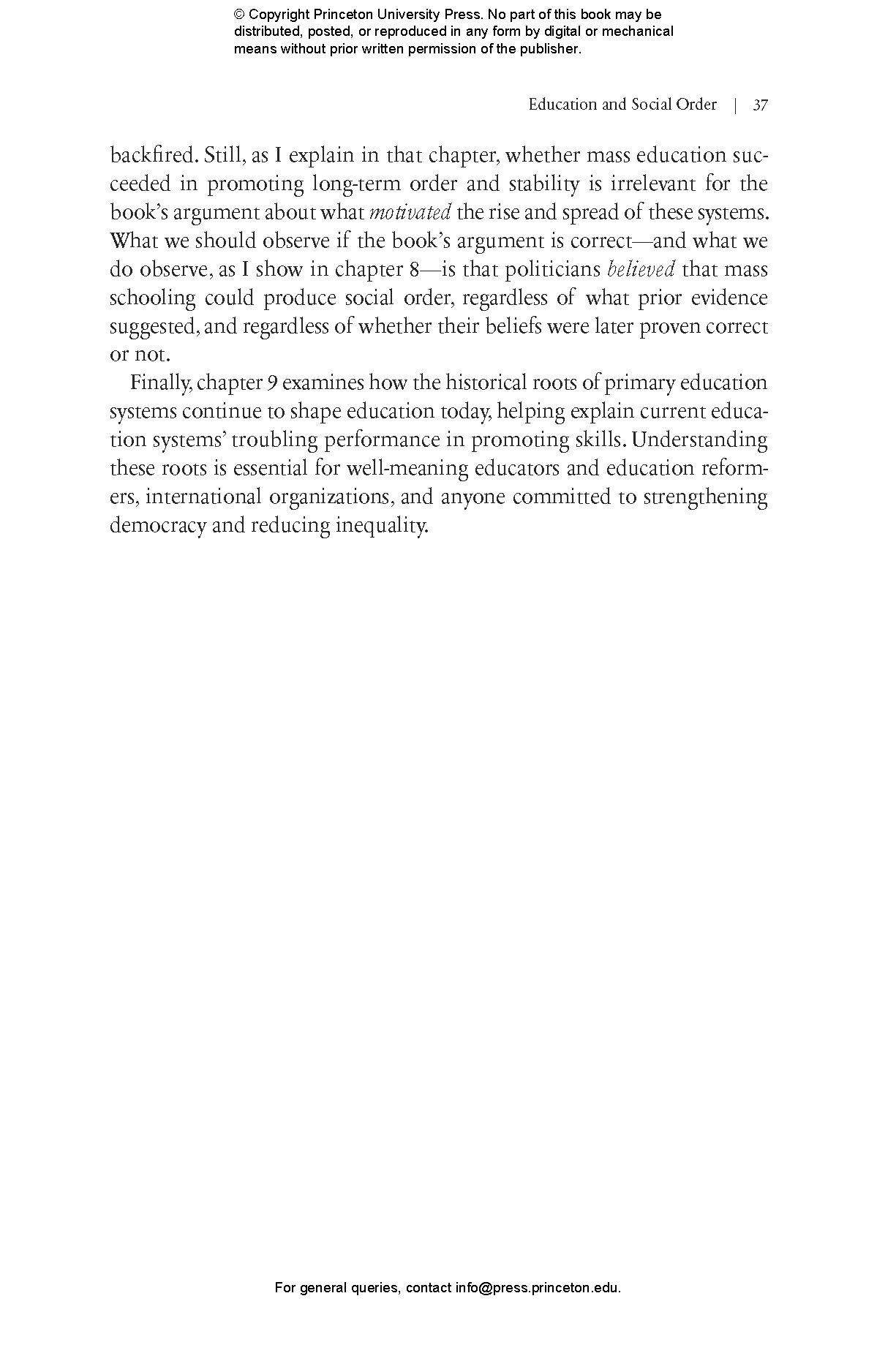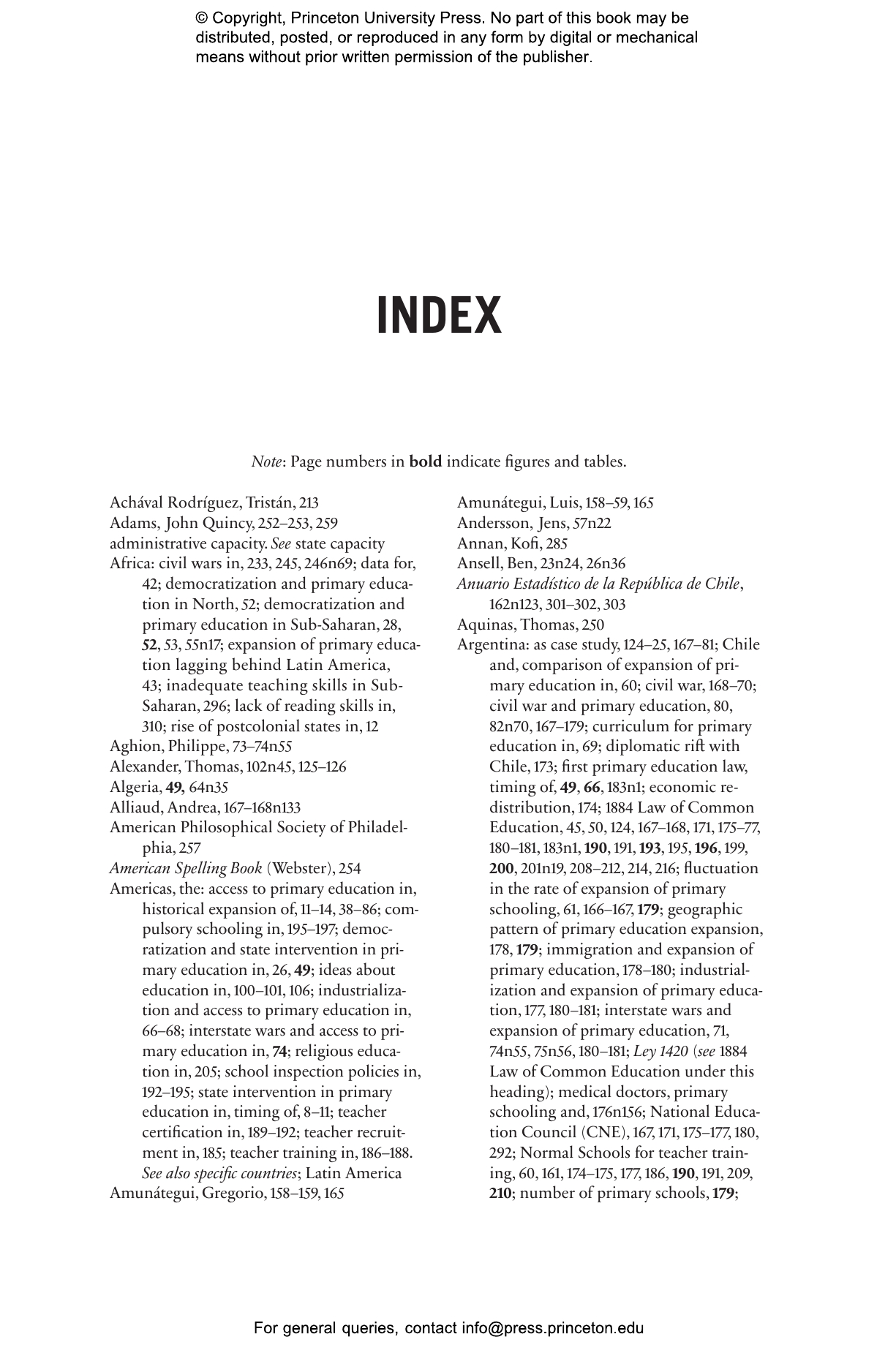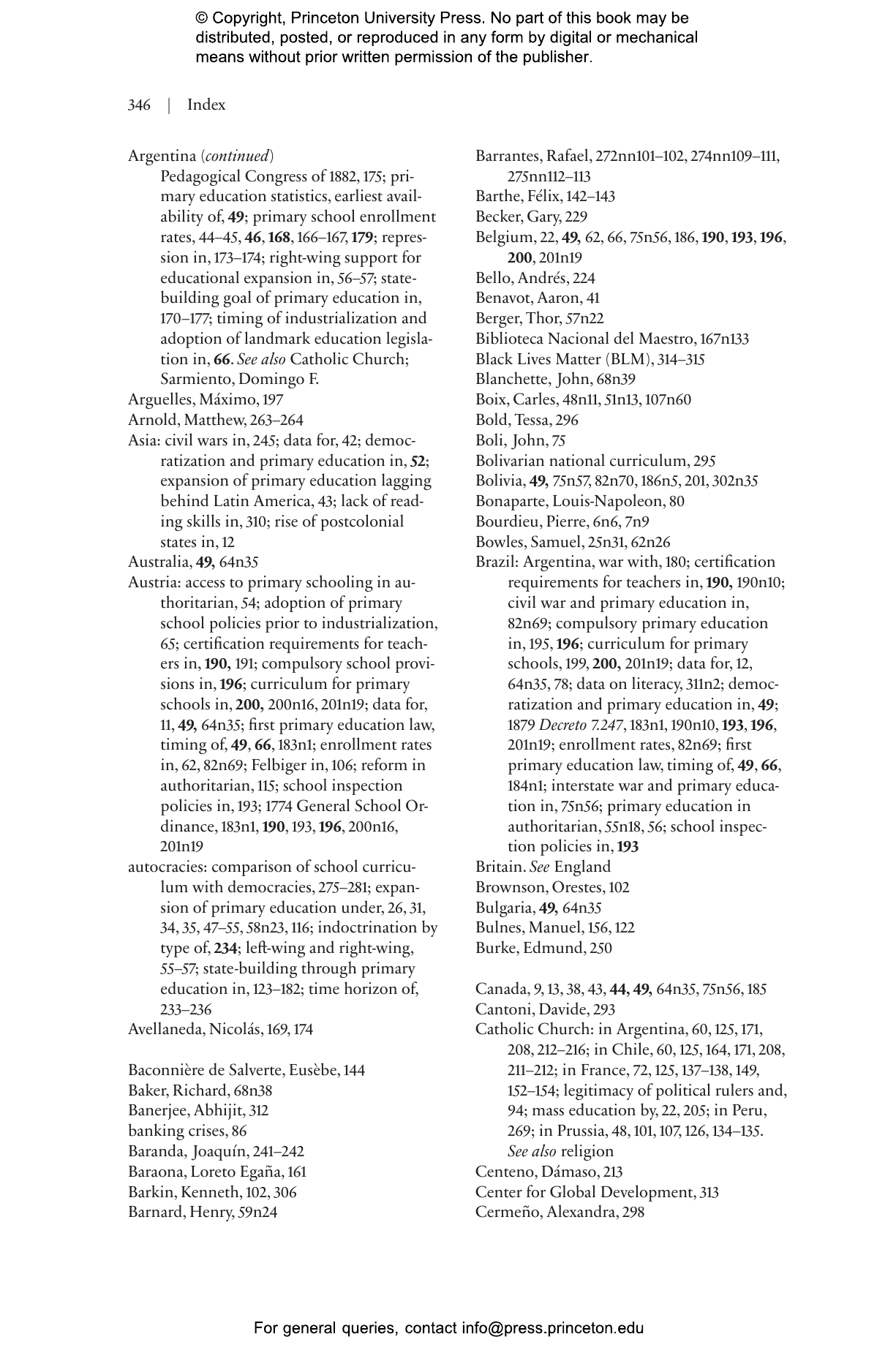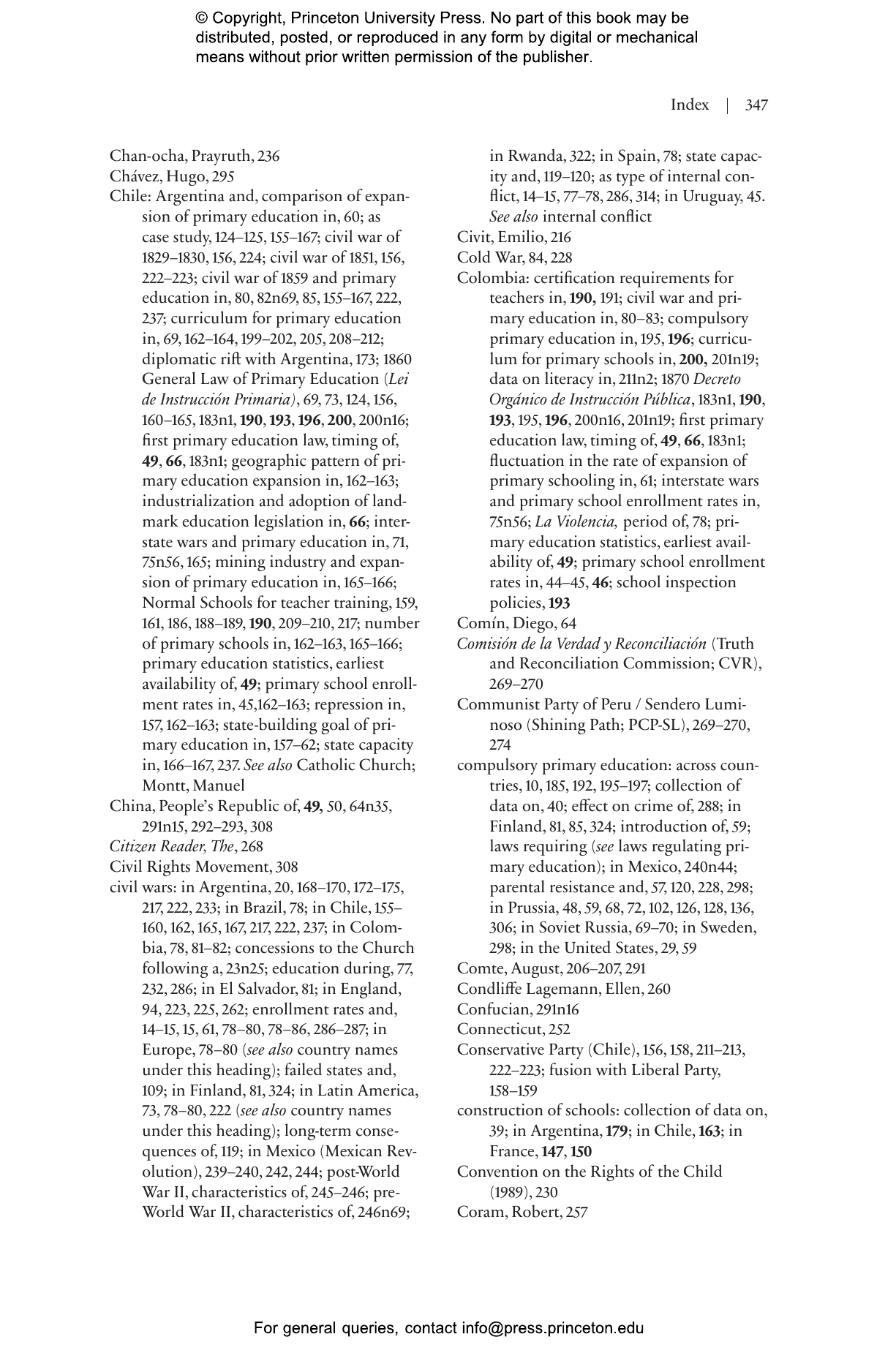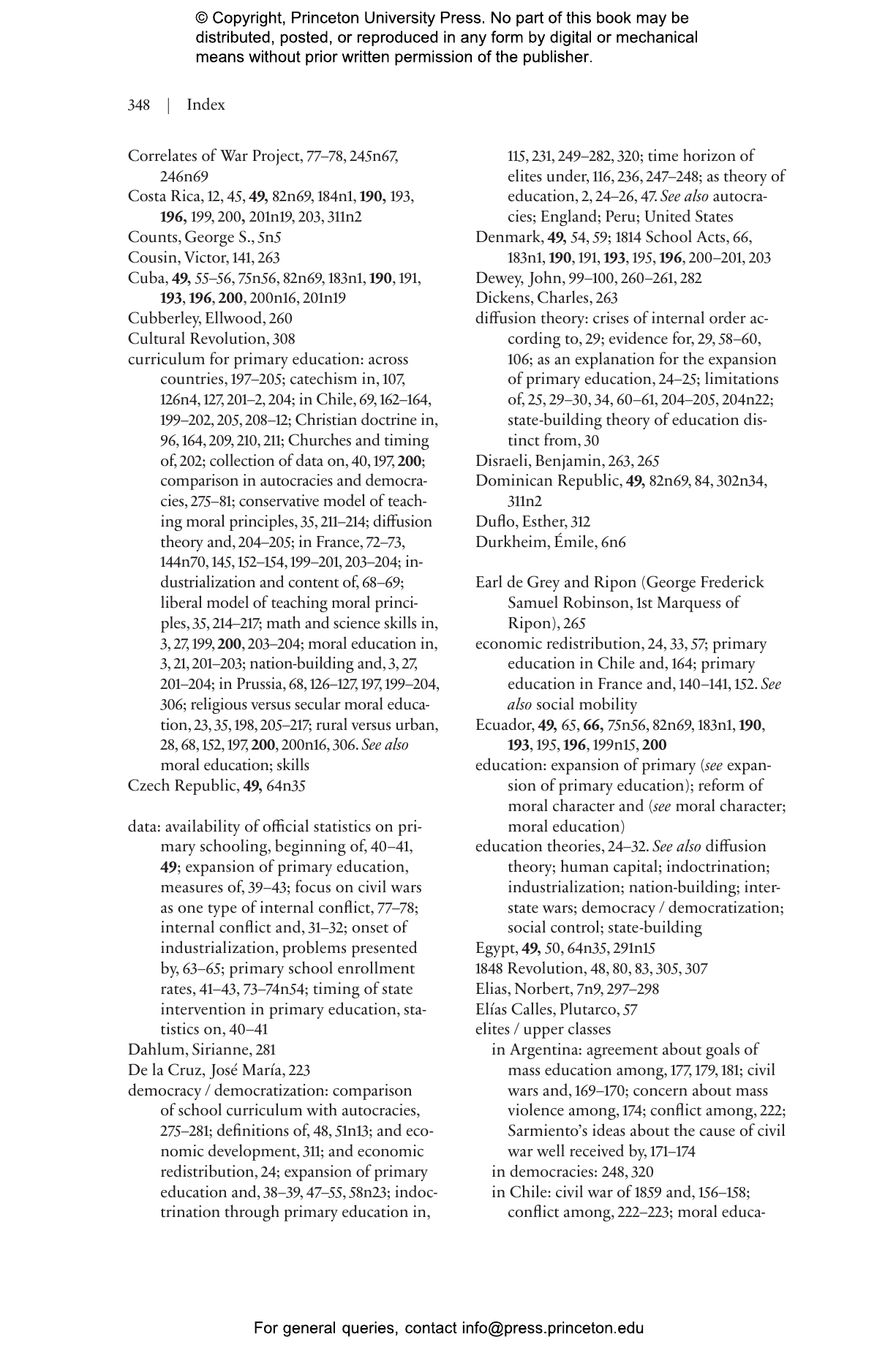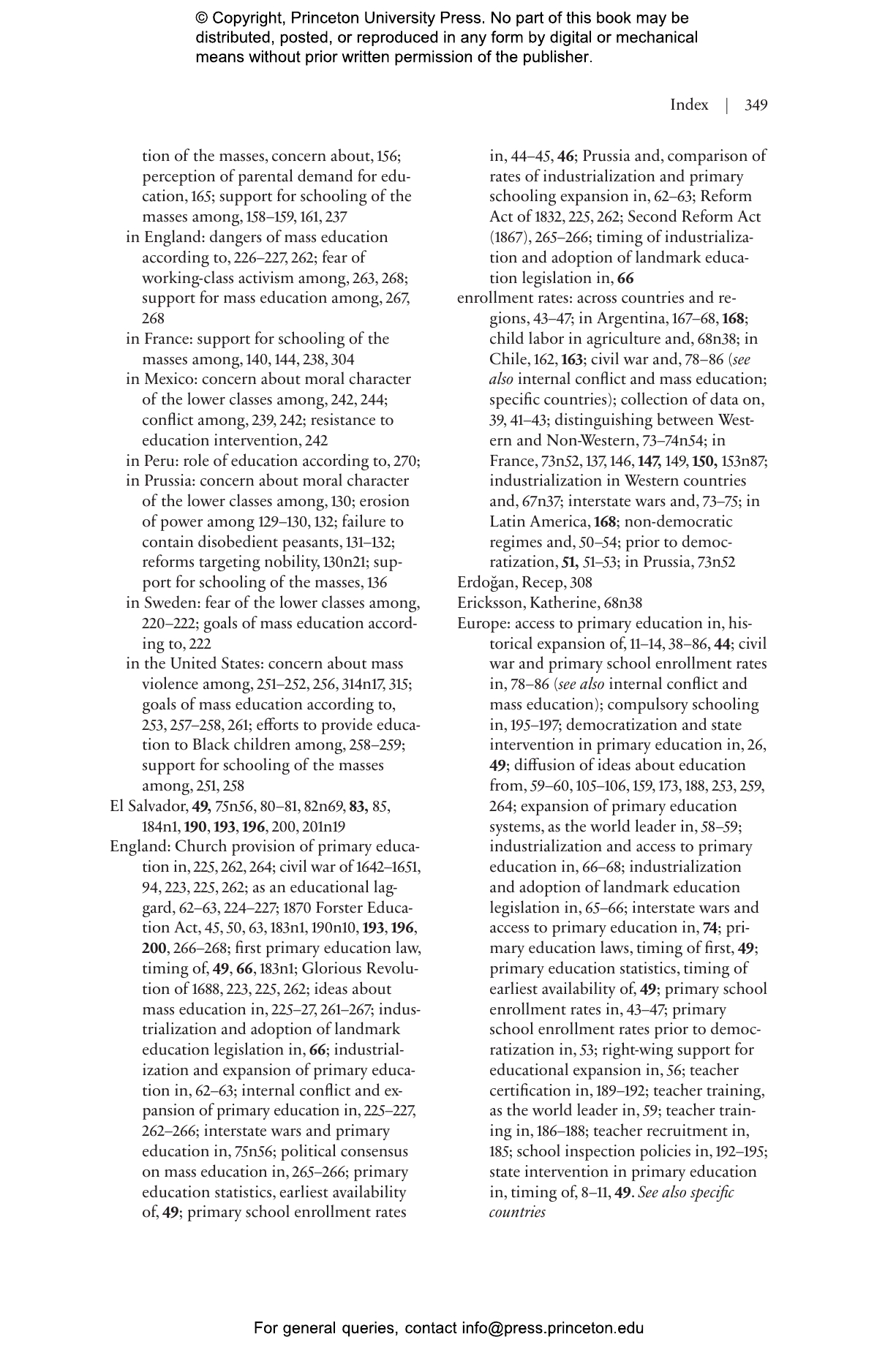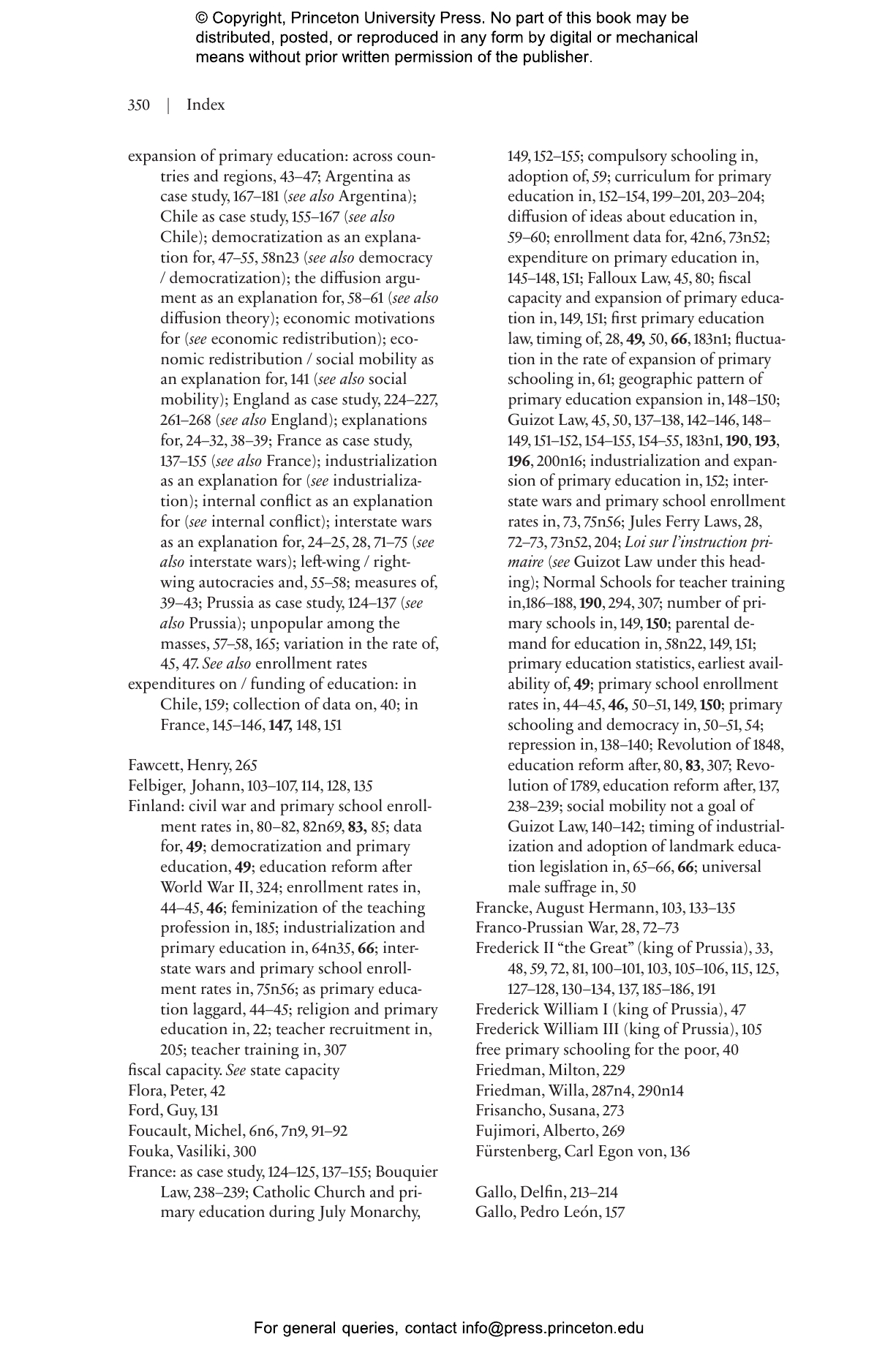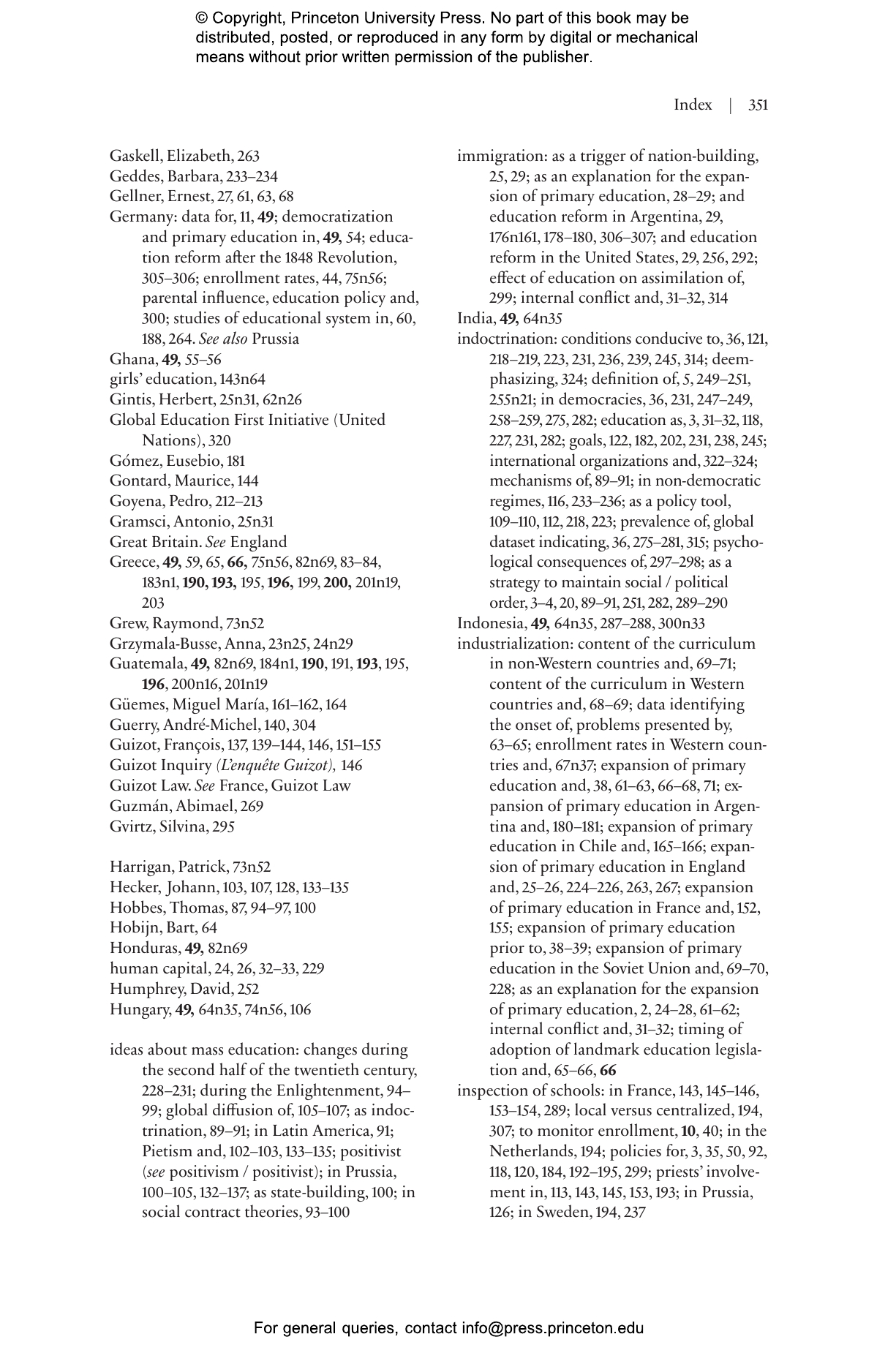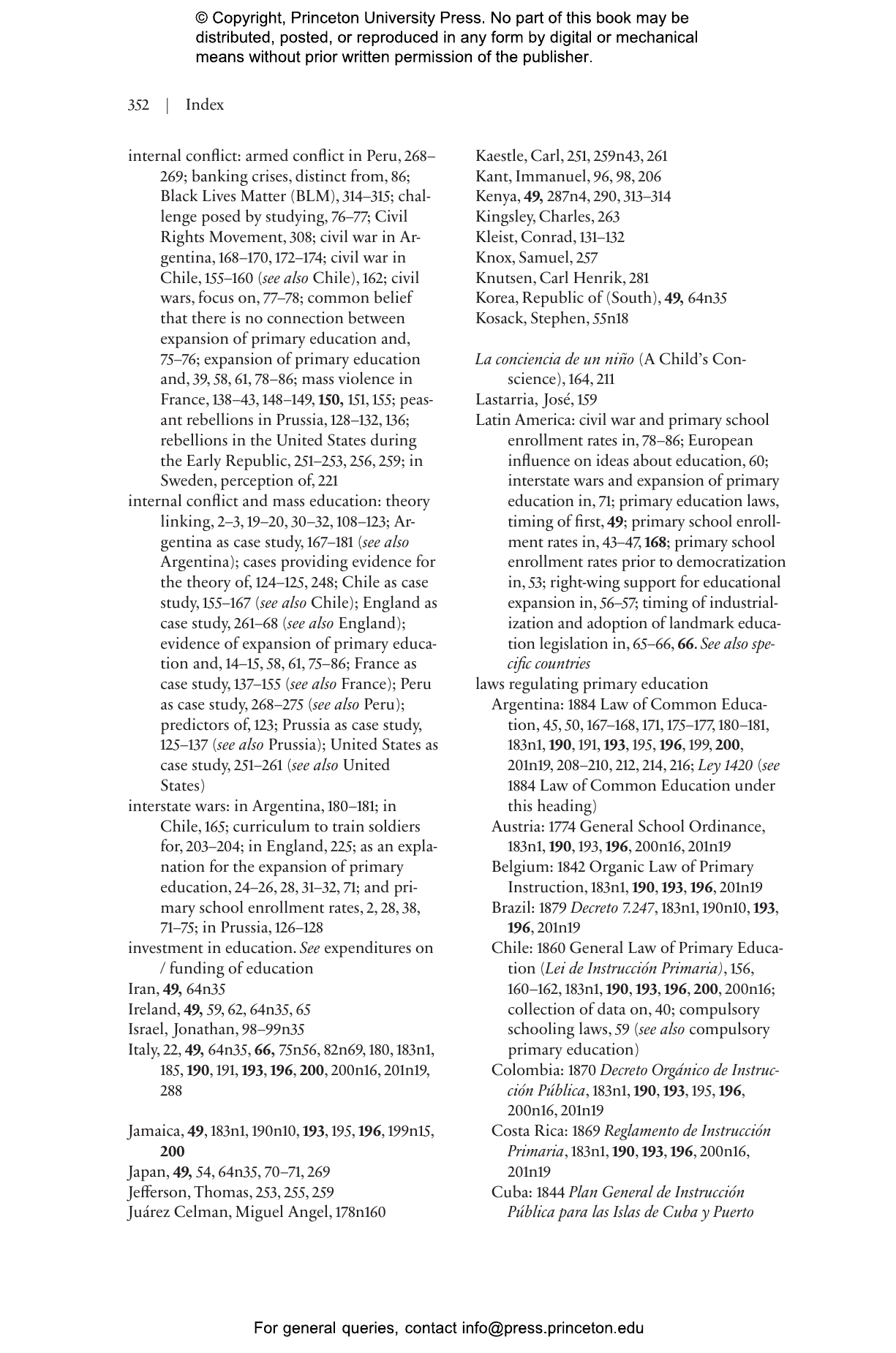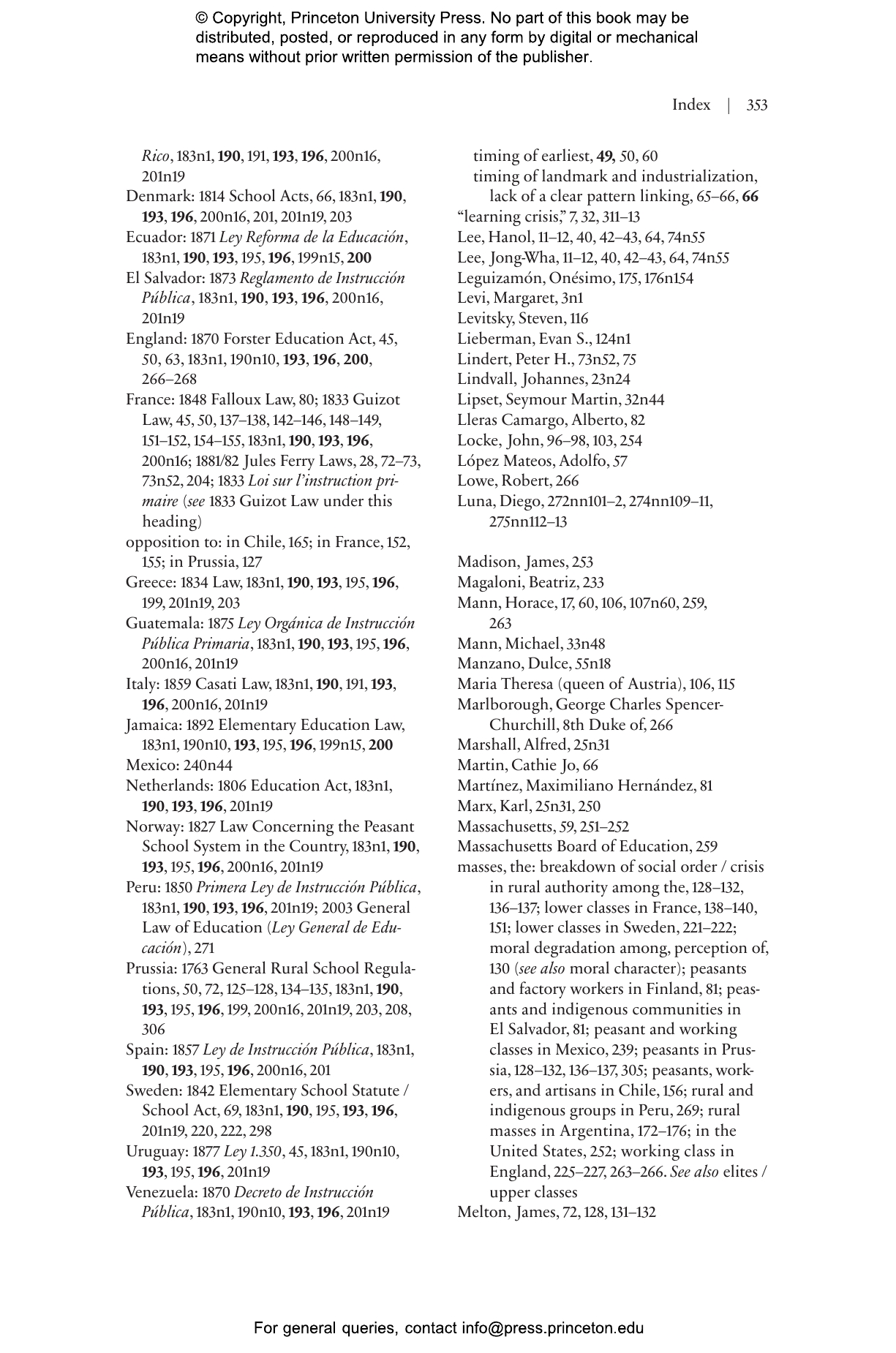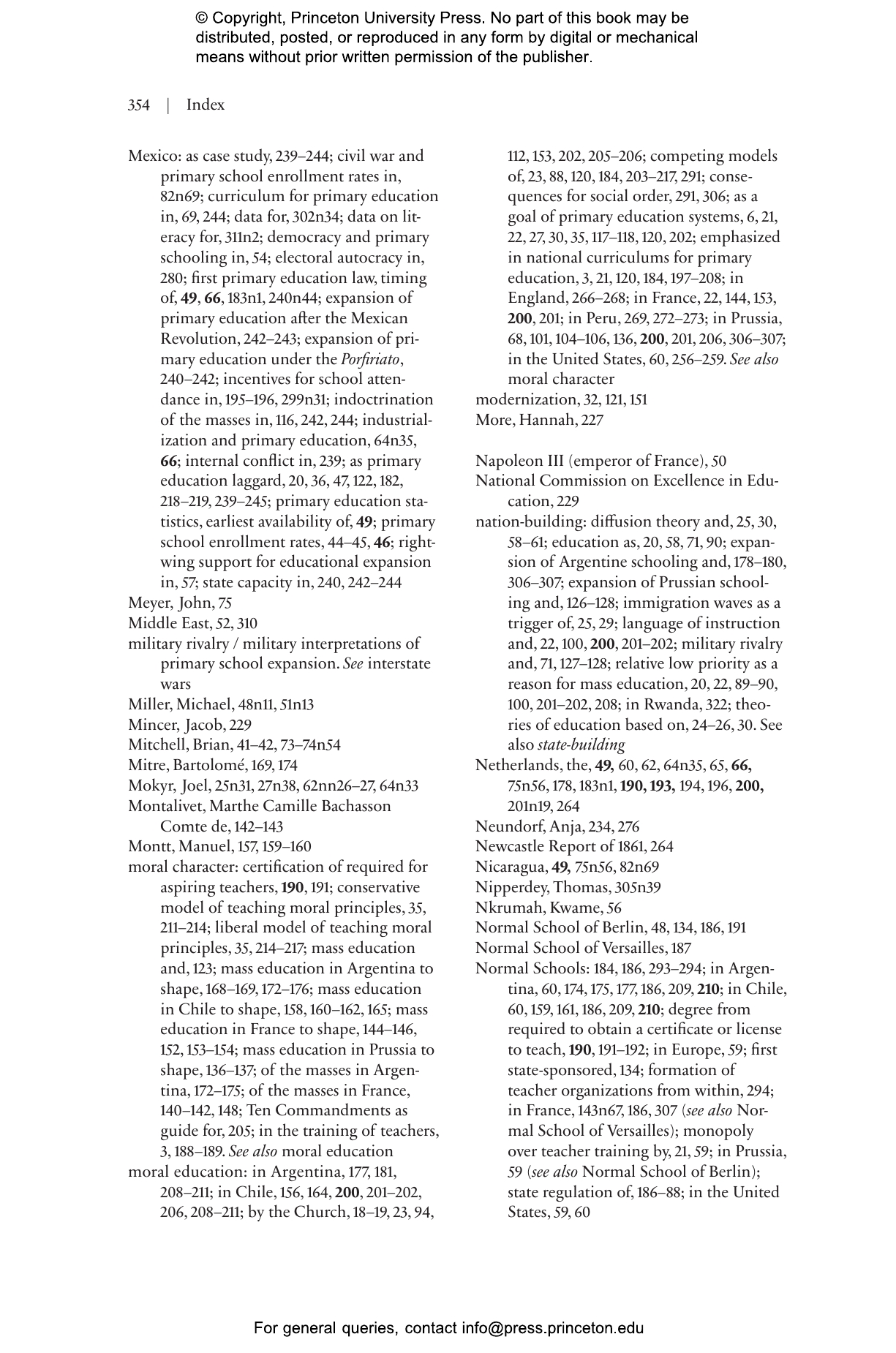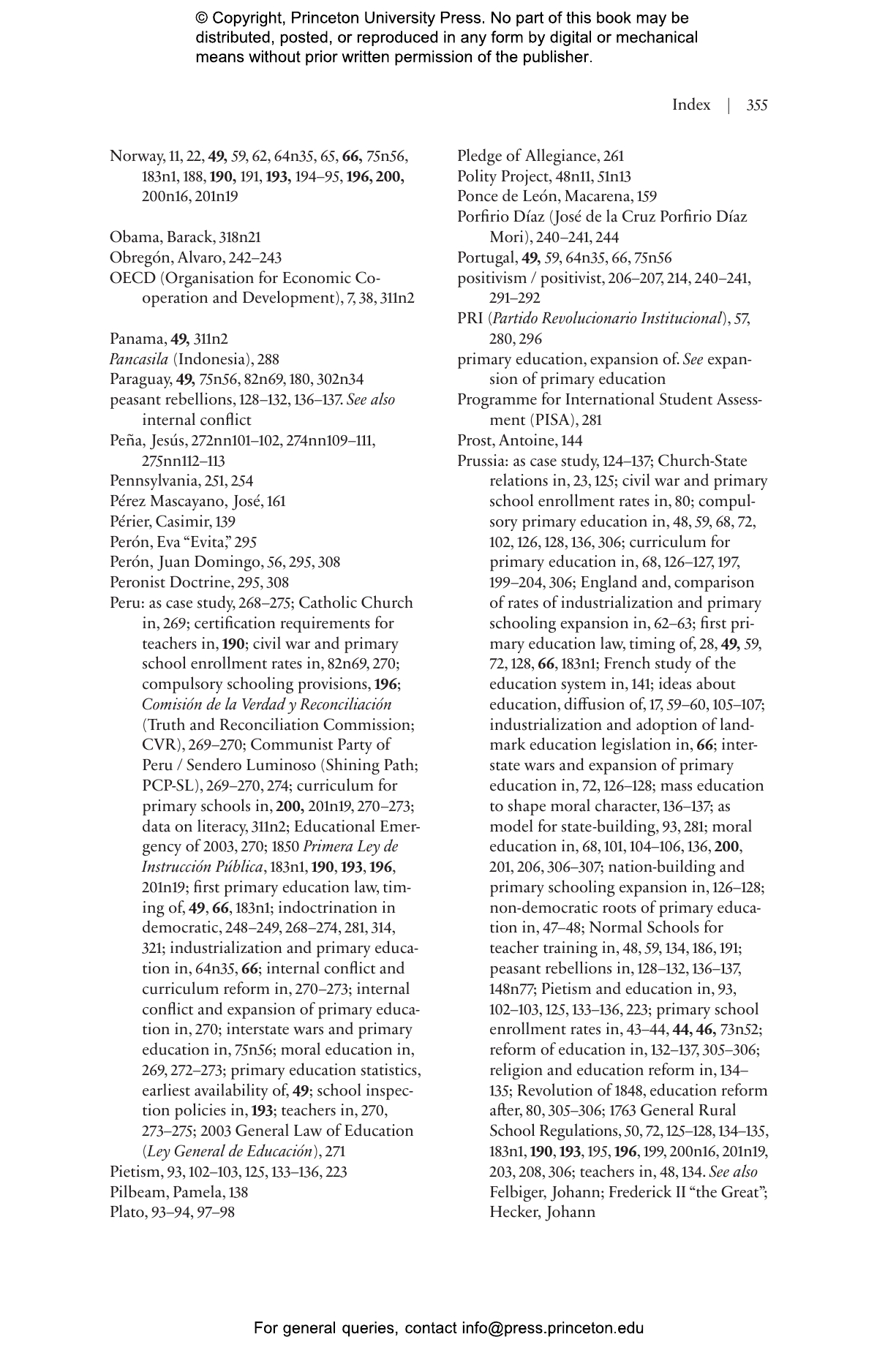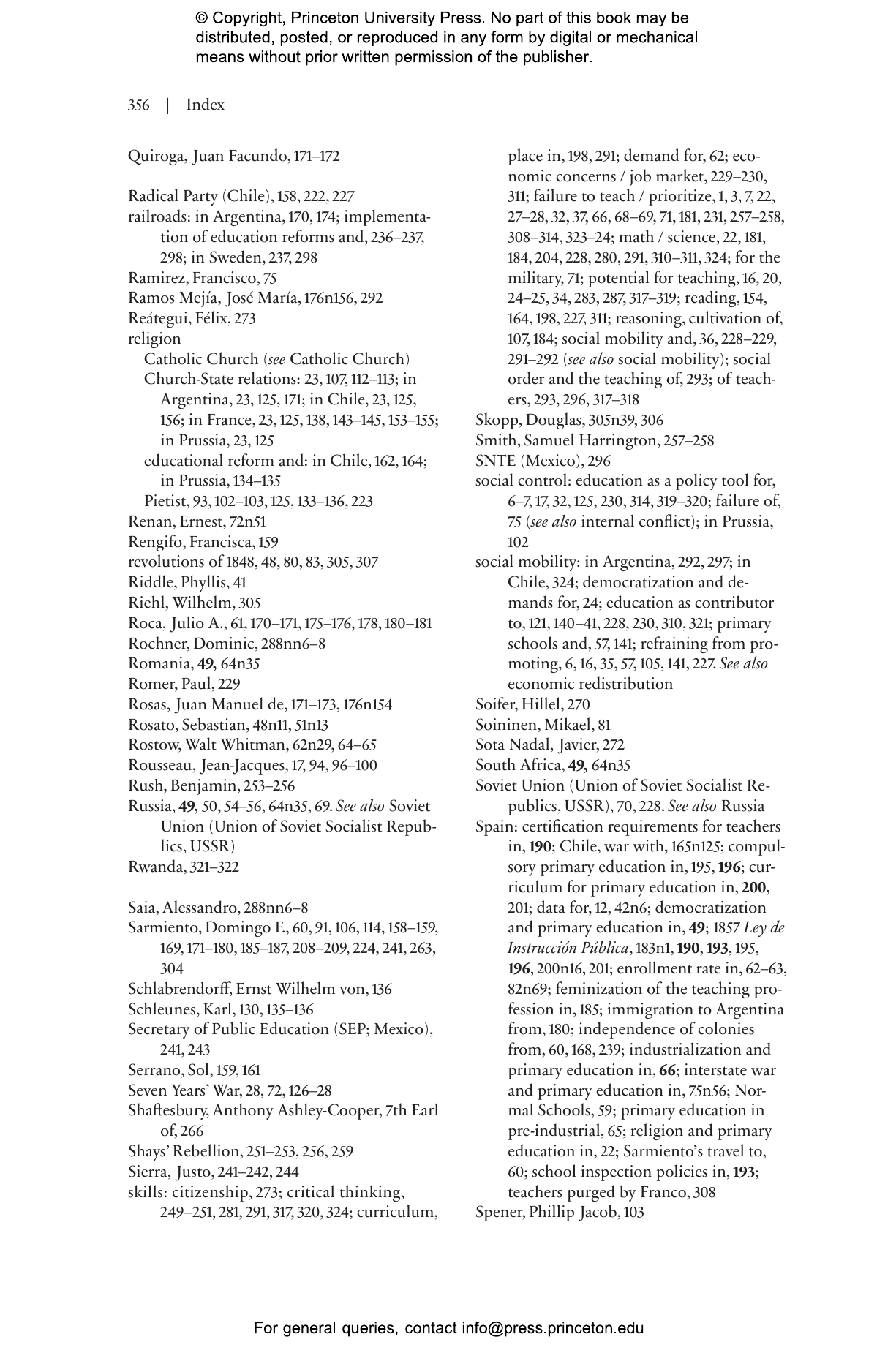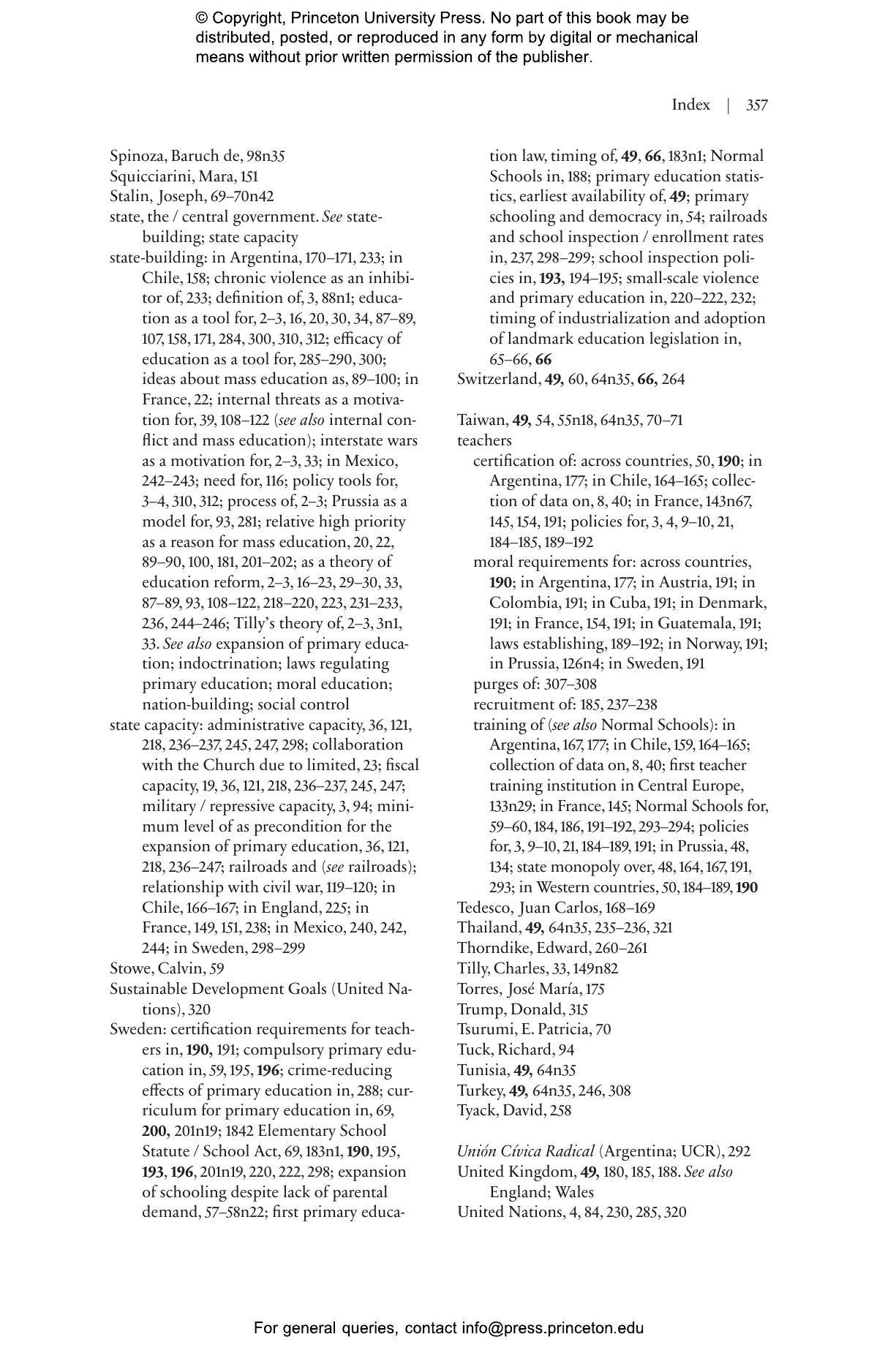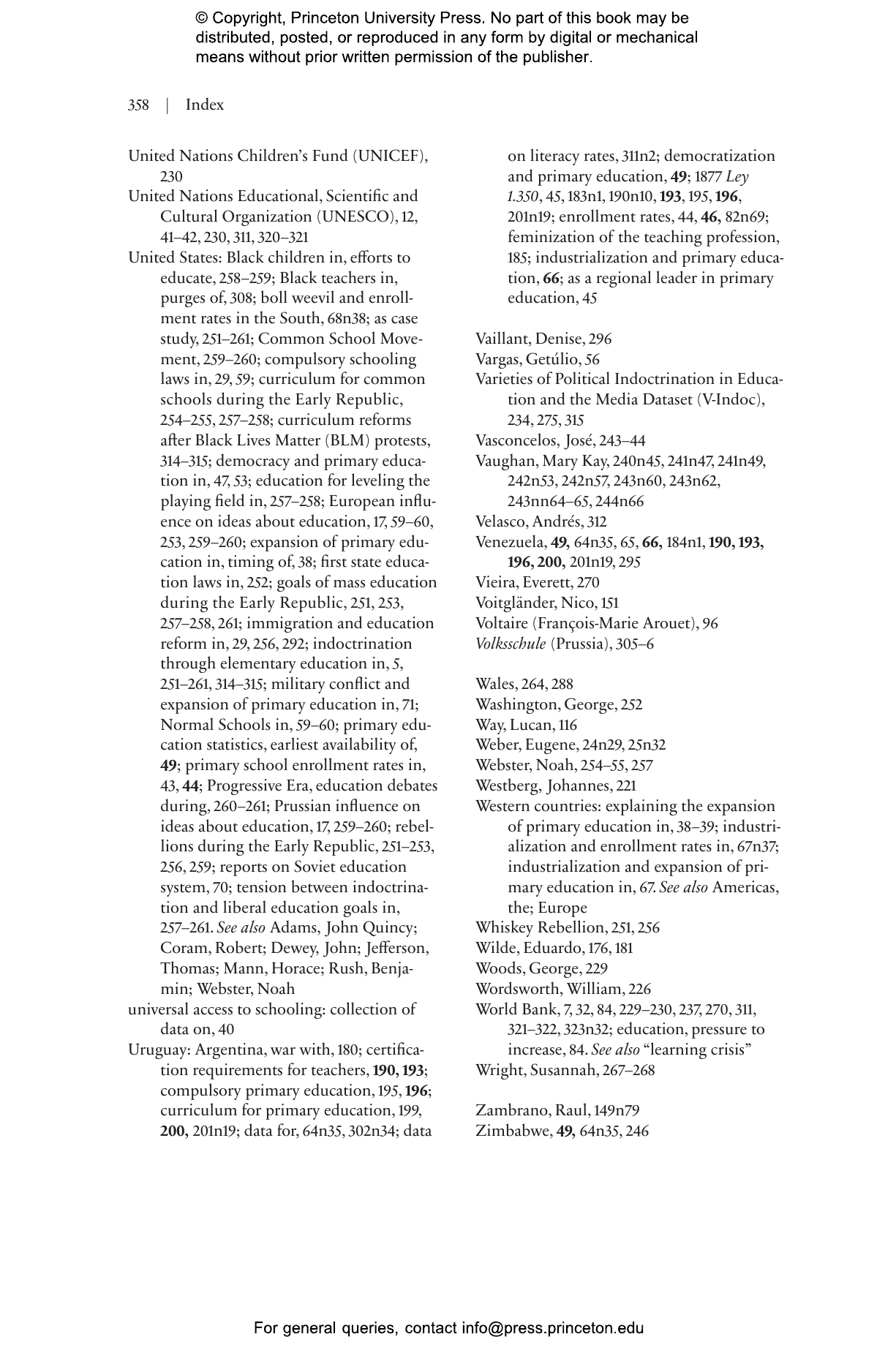Nearly every country today has universal primary education. But why did governments in the West decide to provide education to all children in the first place? In Raised to Obey, Agustina Paglayan offers an unsettling answer. The introduction of broadly accessible primary education was not mainly a response to industrialization, or fueled by democratic ideals, or even aimed at eradicating illiteracy or improving skills. It was motivated instead by elites’ fear of the masses—and the desire to turn the “savage,” “unruly,” and “morally flawed” children of the lower classes into well-behaved future citizens who would obey the state and its laws.
Drawing on unparalleled evidence from two centuries of education provision in Europe and the Americas, and deploying rich data that capture the expansion of primary education and its characteristics, this sweeping book offers a political history of primary schools that is both broad and deep. Paglayan shows that governments invested in primary schools when internal threats heightened political elites’ anxiety around mass violence and the breakdown of social order.
Two hundred years later, the original objective of disciplining children remains at the core of how most public schools around the world operate. The future of education systems—and their ability to reduce poverty and inequality—hinges on our ability to understand and come to terms with this troubling history.
"Phenomenal."—Alice Evans, Rocking Our Priors
"A tour de force. It takes a lot of work—and even more courage—to challenge the dominant theories in your field. . . . That’s precisely what Paglayan has done. Analyzing an astonishing array of sources from Europe and the Americas. . . . Paglayan shows that the vast majority of school systems predated democratization and industrialization, and they more commonly flourished to suppress dissent at home than to rally people against a foreign enemy."—Jonathan Zimmerman, Education Next
"Raised to Obey encourages readers to rethink conventional explanations about the origins of primary education. The book offers compelling evidence of how primary education has been utilized by the state as a tool of control. While the arguments presented by Paglayan may initially seem unsettling, she provides valuable insights that can guide the creation of more meaningful education policies in the future— insights that should not be ignored. I highly recommend Raised to Obey to anyone interested in education and state-building - it will most likely change the way you think about both things!"—Xenia Heiberg Heurlin, Weekendavisen
"A fresh perspective. . . . [Raised to Obey] has opened my eyes to how governments shape these systems and reminded me of the importance of staying critical and vigilant about educational policies. . . . While we may not be able to change the system on our own, we can still guide the younger generation around us. By teaching them to think independently and encouraging them to become active and caring members of society, we can help build a future that values growth over control."—Sekar Sedya, Sekar Writes
“This marvelous book addresses a central paradox in economic development: human capital is central to prosperity, but state efforts at primary schooling often have hugely disappointing payoffs. Agustina Paglayan’s resolution of the paradox is that states did not primarily intend schooling to increase worker skills. Their motivation for schooling was to indoctrinate citizens to accept the political status quo. This empirically compelling research will forever change thinking about education.”—William Easterly, author of The Tyranny of Experts
“What promoted the expansion of public primary education systems? Which states became involved in regulating them? Paglayan provides a compelling and profound answer in this pathbreaking book: state-regulated primary education systems emerged fundamentally as a state-building tool to increase the state’s capacity to forge social order through indoctrination. With the use of original data collection across the world, statistical analyses, archival evidence, and a series of carefully crafted case studies, Raised to Obey compellingly demonstrates that fear of internal conflict, crime, anarchy, and the breakdown of social order are the key factors that prompted governments to regulate and expand primary education rather than democratization, industrialization, or a desire to improve living standards. This masterful analysis is an essential book for scholars of comparative politics, education policy, and social welfare provision, and policymakers interested in understanding the long history of state-regulated primary education and what this can tell us about the nature of the education systems we have today.”—Beatriz Magaloni, Stanford University
“The creation of mass education is not about economic productivity, but about state formation and social control. You will never think about human capital the same way after reading this pathbreaking and iconoclastic book.”—James A. Robinson, University of Chicago, winner of the 2024 Nobel Prize in Economics
“This sweeping and impressive work forces us to rethink well-accepted ideas about the relationship of the state, democracy, and modern education. A major contribution to the study of state-building and comparative politics generally.”—Daniel Ziblatt, Harvard University


